MATLAB | MATLAB配色不够用,近2000款配色来啦
Posted slandarer
tags:
篇首语:本文由小常识网(cha138.com)小编为大家整理,主要介绍了MATLAB | MATLAB配色不够用,近2000款配色来啦相关的知识,希望对你有一定的参考价值。
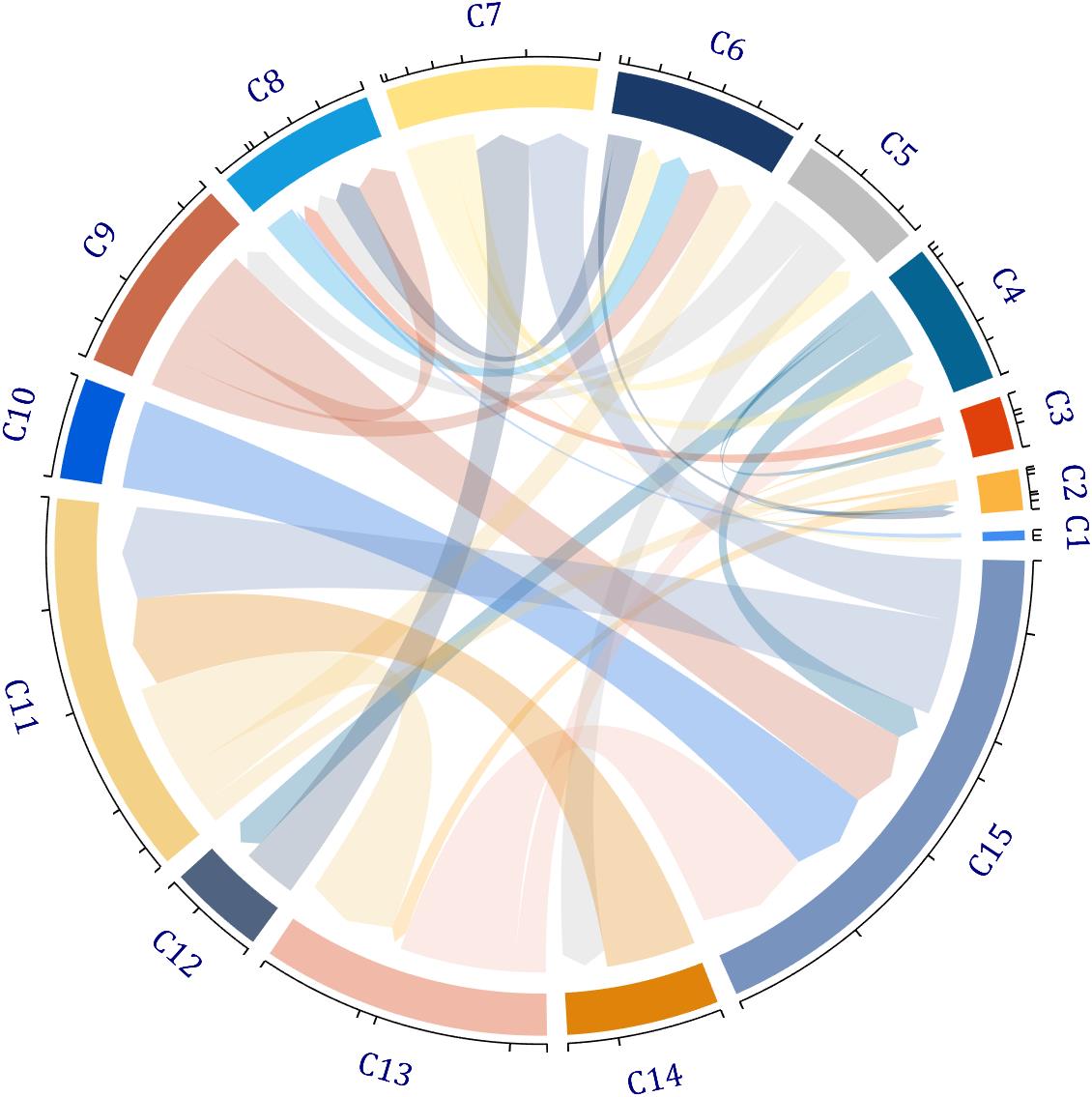
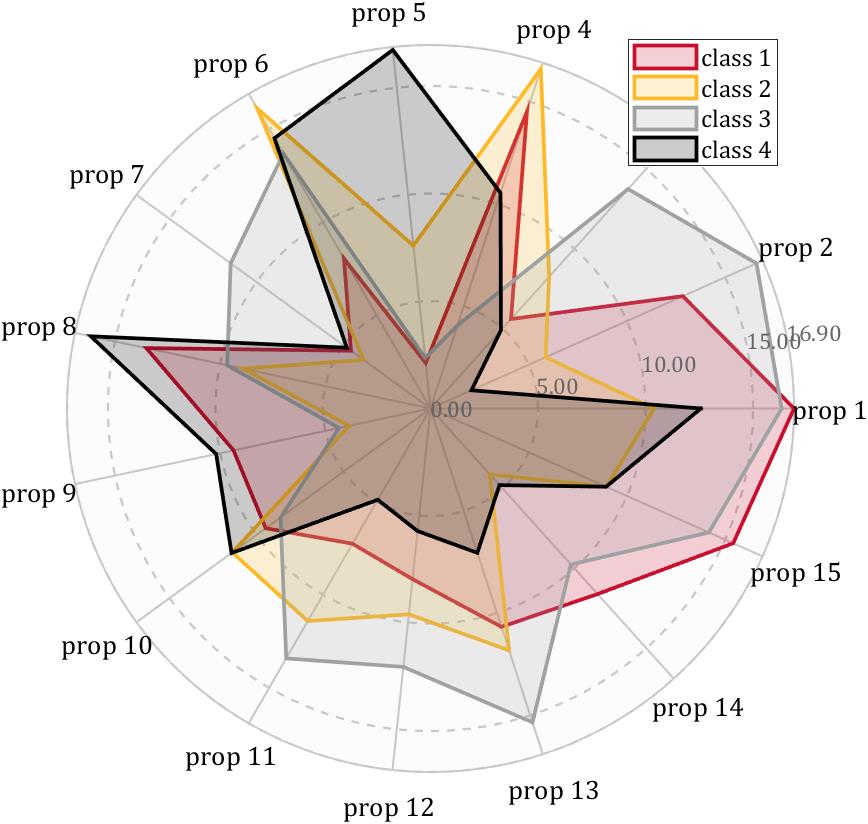
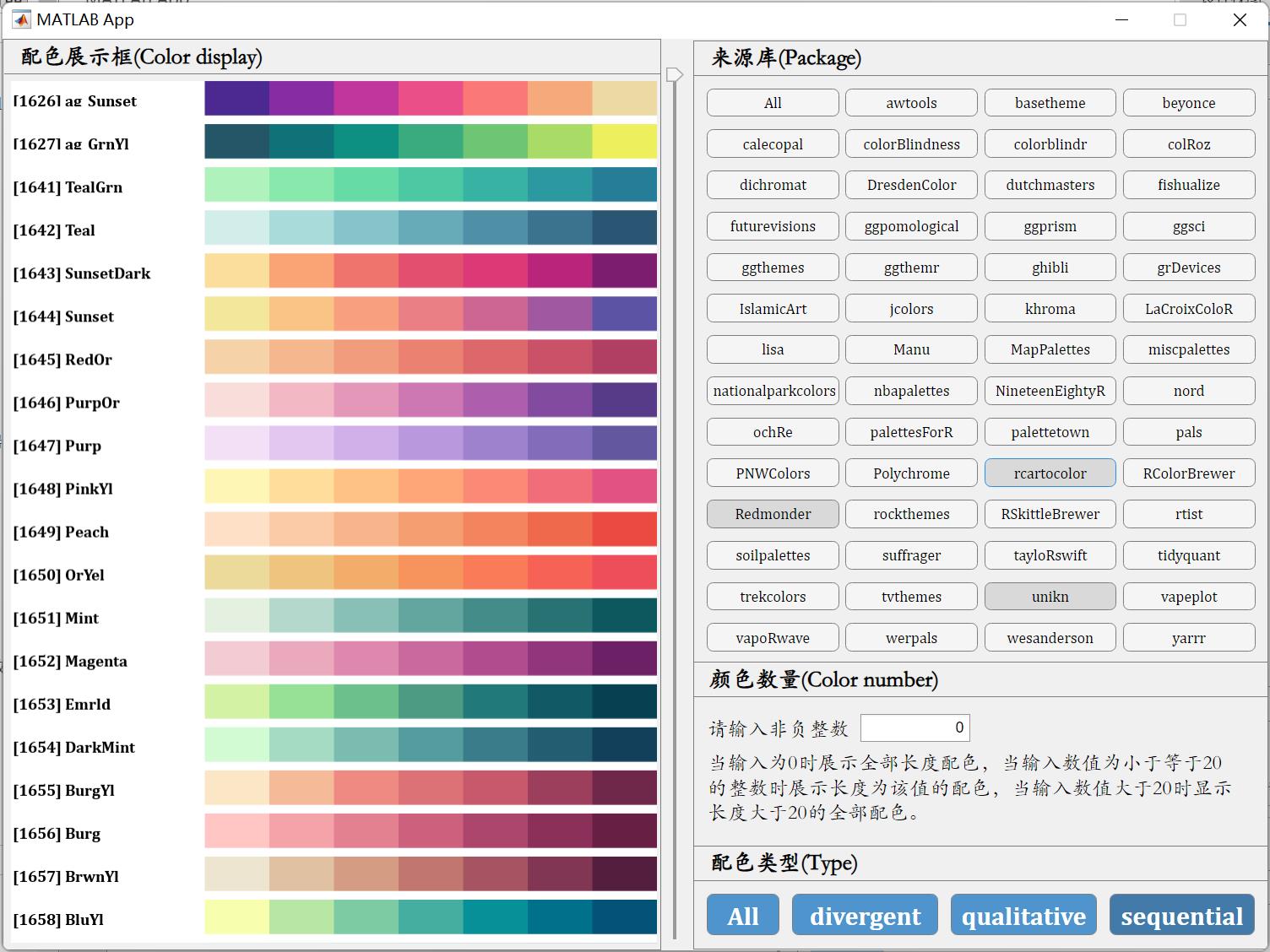
MATLAB绘图配色不够多?很多python\\R语言绘图包都会带着好几套配色方案,比如很常见的ggsci绘图包就自带45套离散配色,于是本工具收集了常见55个绘图包中的离散配色,制作出了这个包含了1967套配色的离散配色包slanCL。
基本使用
以下先说明代码咋用,最基础的用法就是:
- slanCL(n)
就是选择slanCL包的第n套配色:
CList=slanCL(617)
% CList =
% 0.3059 0.4745 0.6549
% 0.9490 0.5569 0.1686
% 0.8824 0.3412 0.3490
% 0.4627 0.7176 0.6980
% 0.3490 0.6314 0.3098
% 0.9294 0.7882 0.2824
% 0.6902 0.4784 0.6314
% 1.0000 0.6157 0.6549
% 0.6118 0.4588 0.3725
% 0.7294 0.6902 0.6745

第二种用法有俩参数:
- slanCL(n,Ind)
Ind可以是一个数值,也可以是一个向量:
CList=slanCL(617,[1,3,5,7,9])
% CList =
% 0.3059 0.4745 0.6549
% 0.8824 0.3412 0.3490
% 0.3490 0.6314 0.3098
% 0.6902 0.4784 0.6314
% 0.6118 0.4588 0.3725

若是向量中的数值大于配色所含颜色数,依旧能取到颜色,不过颜色亮度变为前一轮颜色90%:
CList=slanCL(617,1:80);
可以看到数值越大颜色越暗:

绘图示例
示例1
% 随机生成数据
X=.3+rand(1,10);
explode=0.*X;
explode(7)=1.5;
% 基础绘图
pieHdl=pie(X,explode);
% 修改配色
for i=1:2:length(pieHdl)
% 一次只取一个颜色
pieHdl(i).FaceColor=slanCL(1924,(i+1)/2);
pieHdl(i+1).FontName='Cambria';
pieHdl(i+1).FontSize=12;
end
% 添加图例
lgdHdl=legend();
lgdHdl.Location='best';
lgdHdl.NumColumns=2;
lgdHdl.FontName='Cambria';
lgdHdl.FontSize=11;
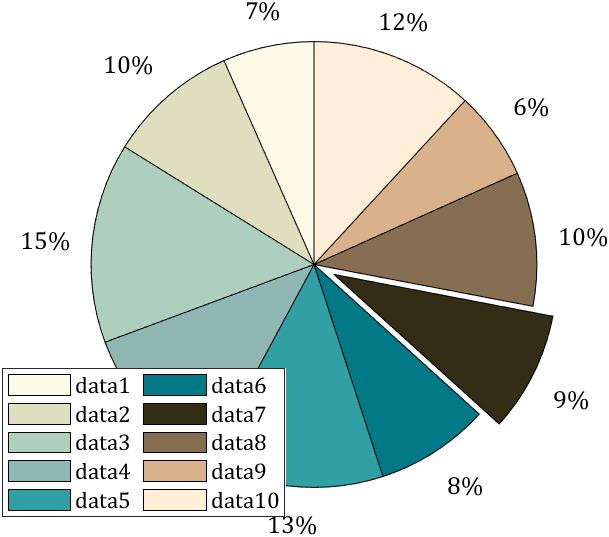
示例2
% 随机生成数据
X=.3+rand(1,23);
% 基础绘图
ax=gca;hold on;axis tight
bHdl=bar(X);
bHdl.FaceColor='flat';
bHdl.LineWidth=.8;
% 修改配色
CList=slanCL(786,1:23);
for i=1:size(CList,1)
bHdl.CData(i,:)=CList(i,:);
end
% 坐标区域修饰
ax.DataAspectRatio=[12,1,1];
ax.FontName='Times New Roman';
ax.LineWidth=.9;
ax.FontSize=13;
ax.YGrid='on';
ax.GridLineStyle='-.';
ax.XTick=1:23;
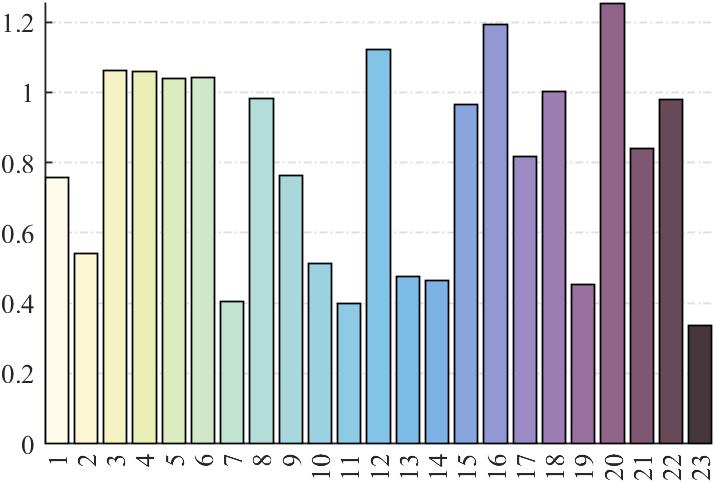
示例3
% 随机生成数据
X=1.5+rand(4,4);
% 基础绘图
ax=gca;hold on;
bHdl=bar(X,'LineWidth',.8);
% 修改配色
CList=slanCL(1514,1:4);
bHdl(1).FaceColor=CList(1,:);
bHdl(2).FaceColor=CList(2,:);
bHdl(3).FaceColor=CList(3,:);
bHdl(4).FaceColor=CList(4,:);
% 坐标区域修饰
ax.FontName='Times New Roman';
ax.LineWidth=.8;
ax.FontSize=12;
ax.YGrid='on';
ax.GridLineStyle='-.';
ax.XTick=1:23;
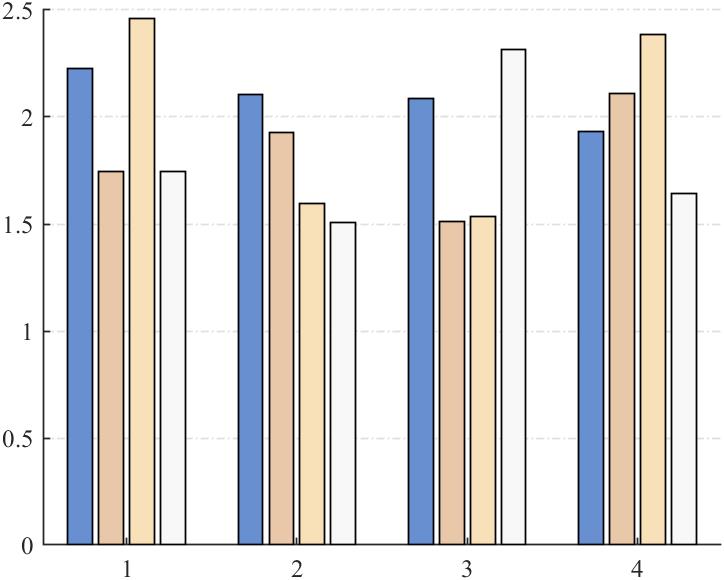
示例4
x=0:0.05:10;
K=linspace(0,6,50);
% 基础绘图
ax=gca;hold on;
for k=1:length(K)
y=besselj(K(k),x);
plot(x,y,'LineWidth',2,'Color',slanCL(531,k))
end
% 坐标区域修饰
ax.FontName='Times New Roman';
ax.LineWidth=.8;
ax.XMinorTick='on';
ax.YMinorTick='on';
ax.FontSize=12;
ax.XGrid='on';
ax.YGrid='on';
ax.GridLineStyle='-.';
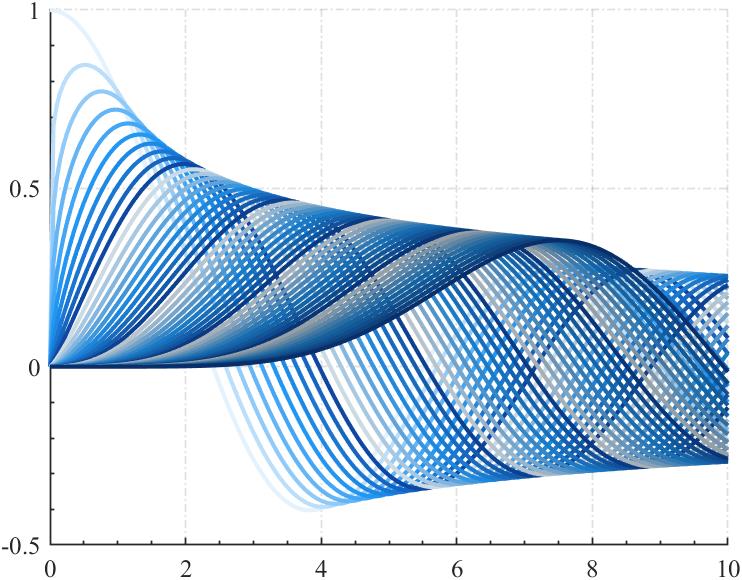
示例5
X=rand(10);
ax=gca;hold on
CF=contourf(X);
% 修改配色
colormap(slanCL(1644))
colorbar
% 坐标区域修饰
ax.FontName='Times New Roman';
ax.LineWidth=.8;
ax.XMinorTick='on';
ax.YMinorTick='on';
ax.FontSize=12;
ax.TickDir='out';
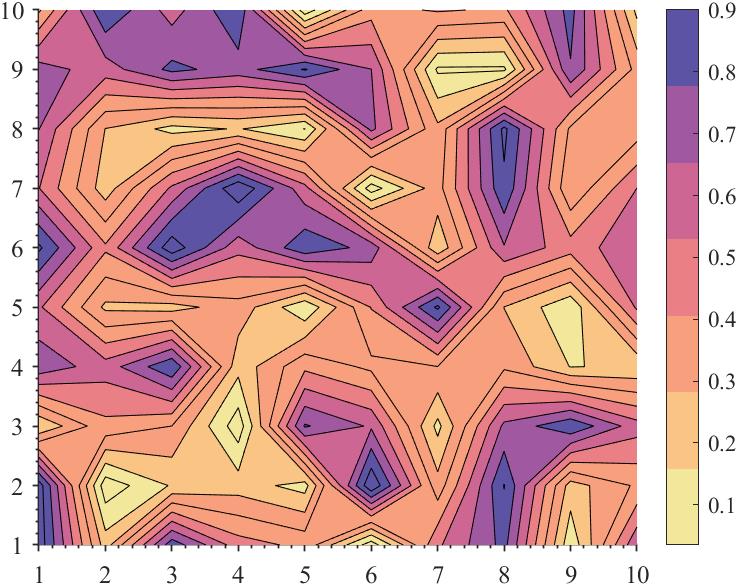
其他示例
以下展示我写的其他文章中的绘图使用本文中的配色:
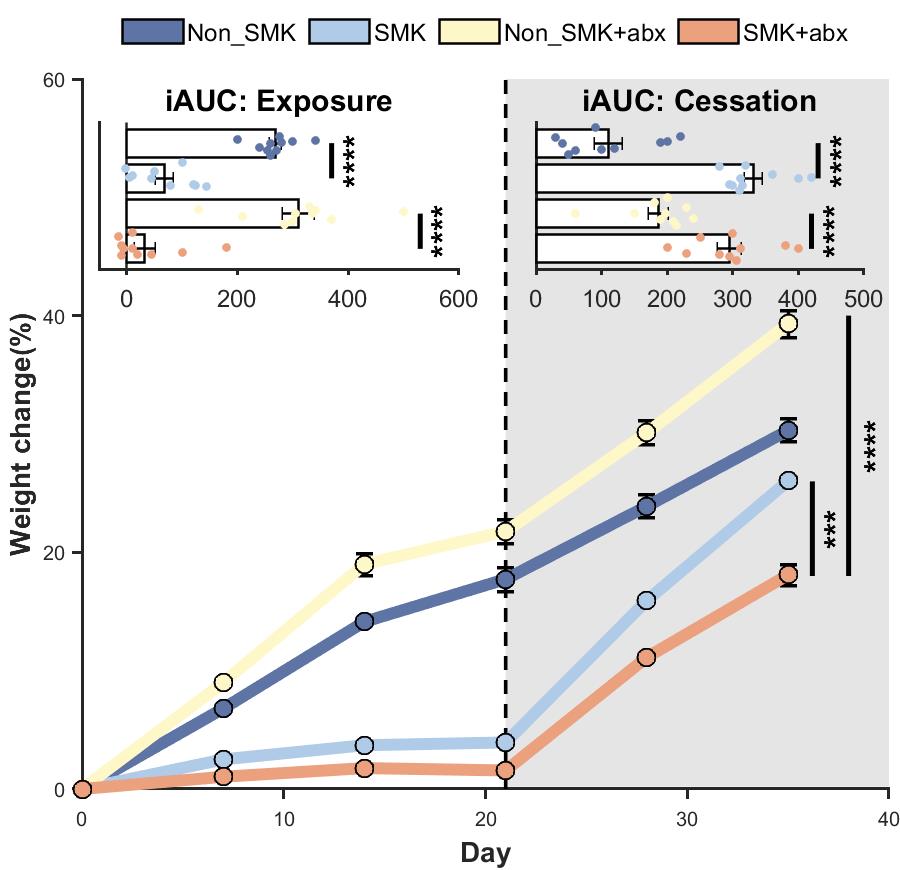
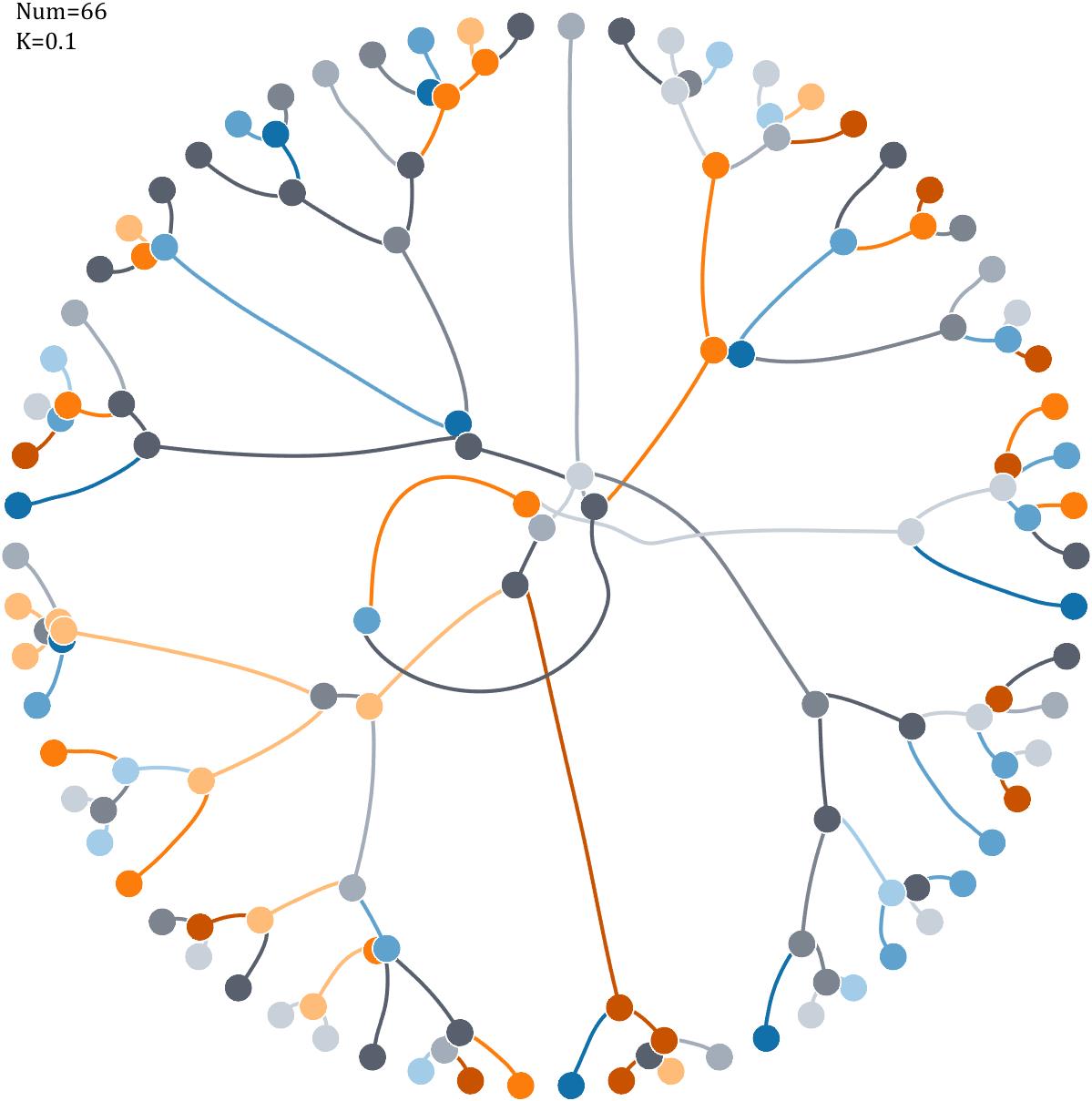
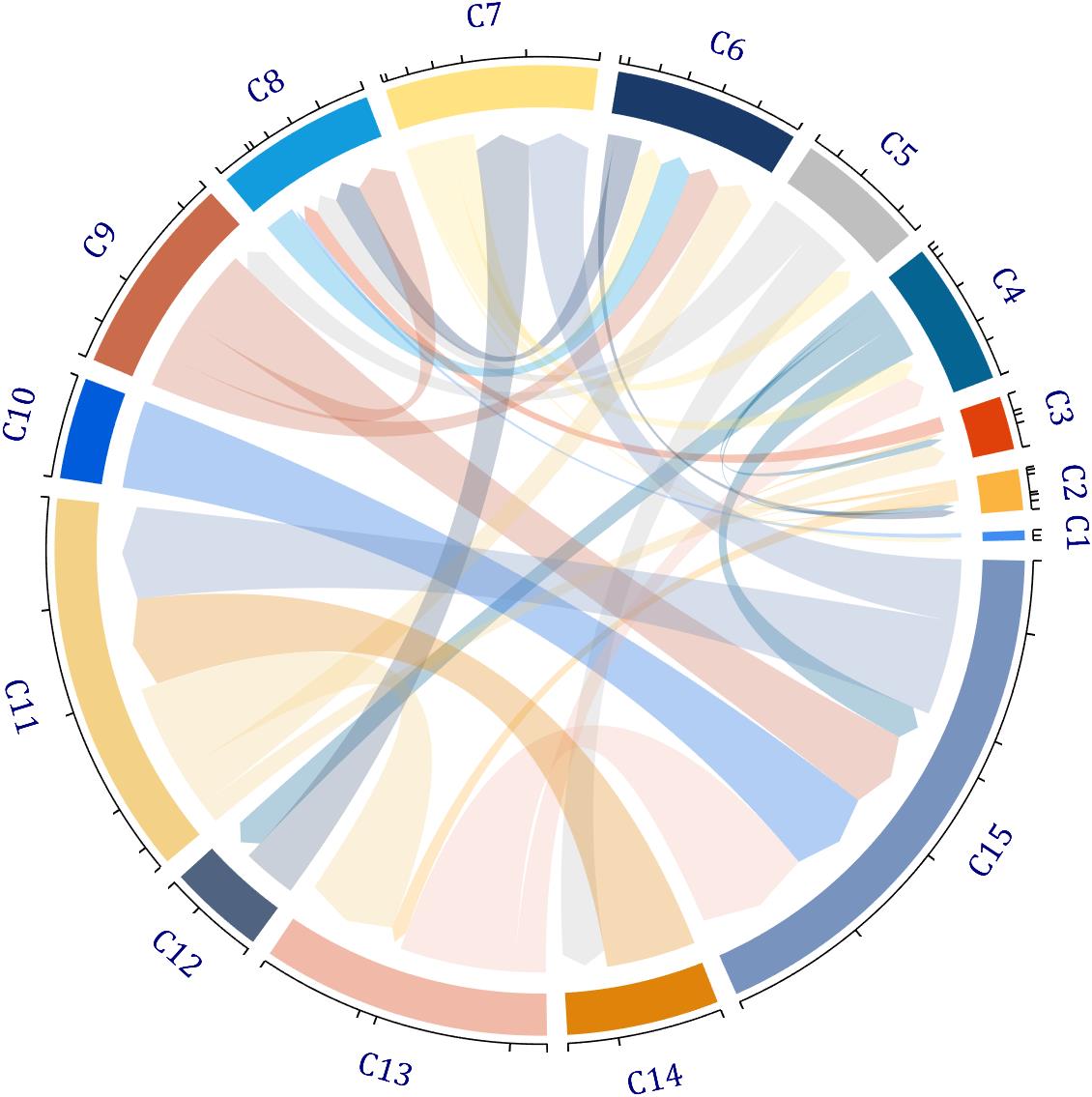
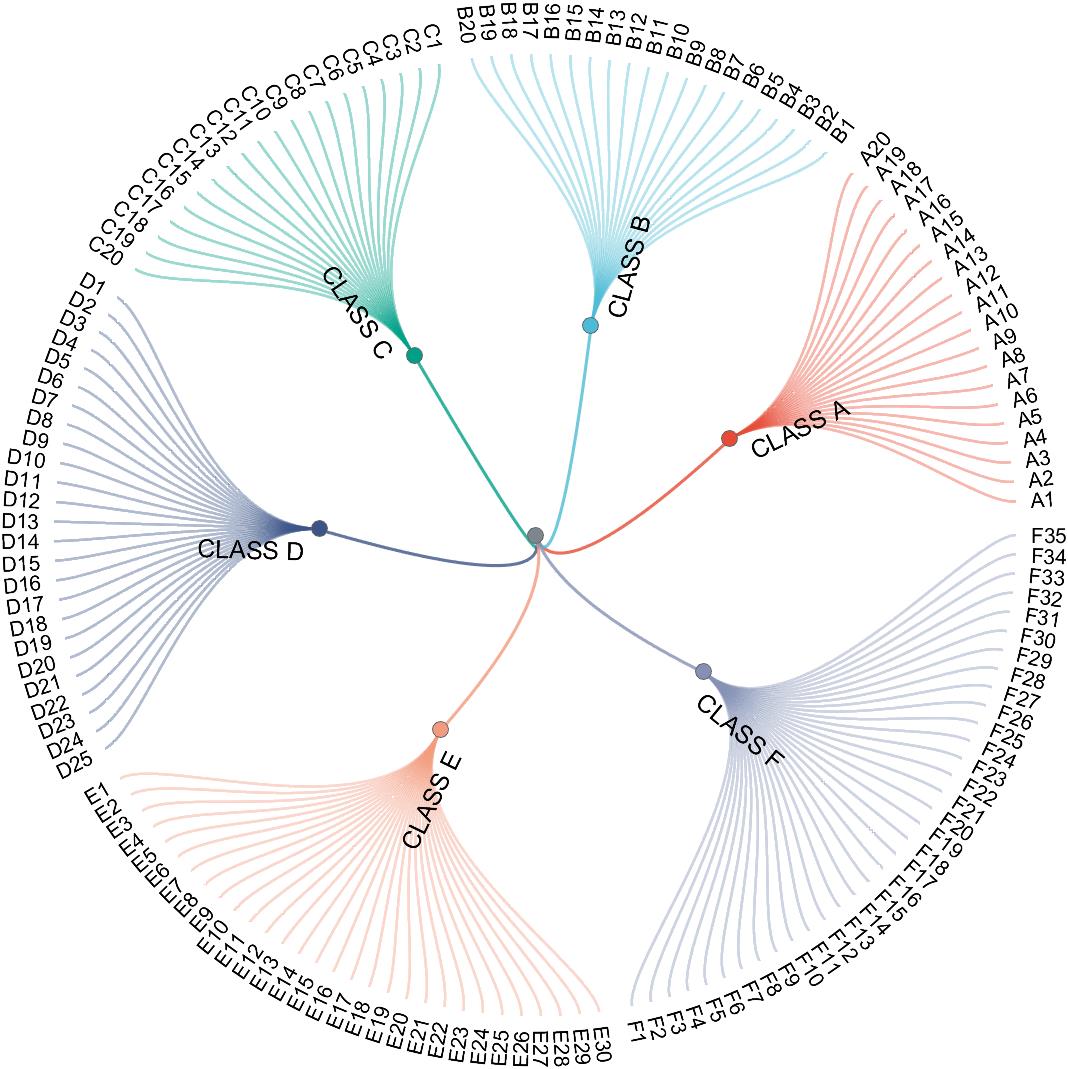
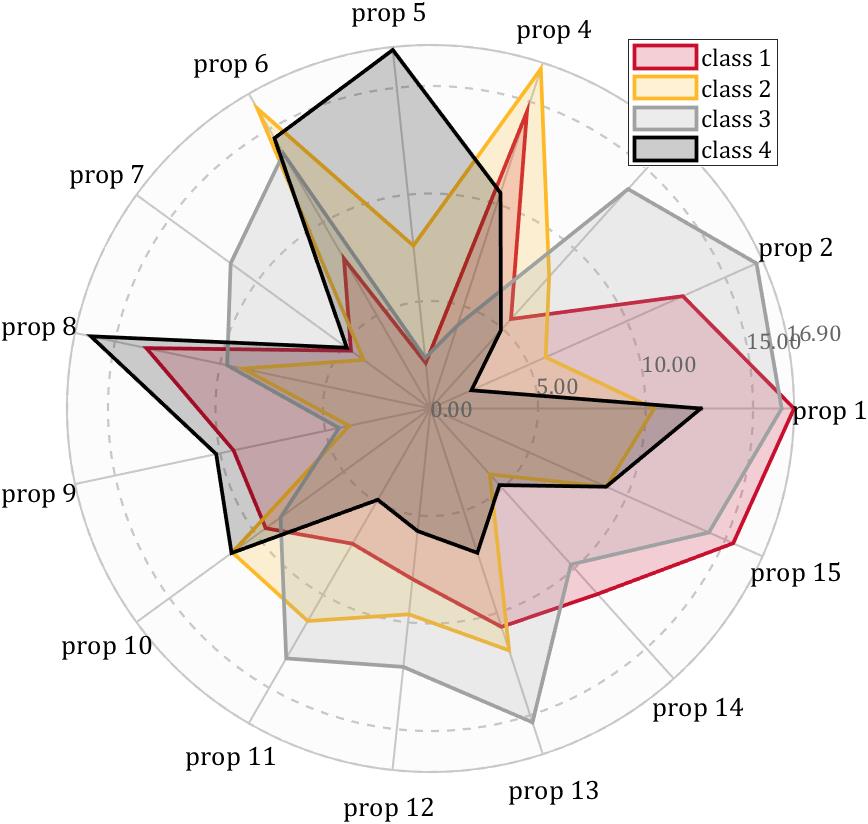
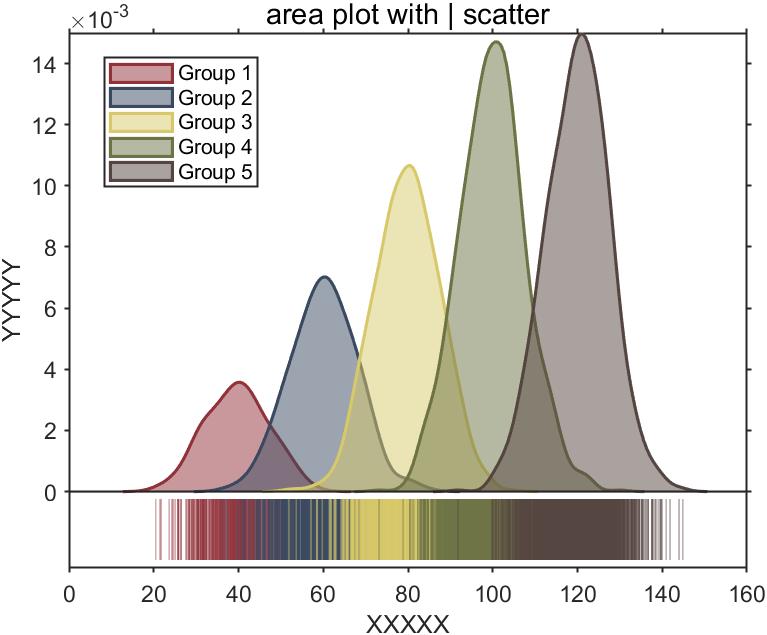
配色展示
首先还是展示一下全部配色,让大家看看2000左右套配色有多壮观,之后介绍使用app designer写的辅助配色选择器。
后面将提供辅助筛选器!!
后面将提供辅助筛选器!!
后面将提供辅助筛选器!!
后面将提供辅助筛选器!!
全部配色展示

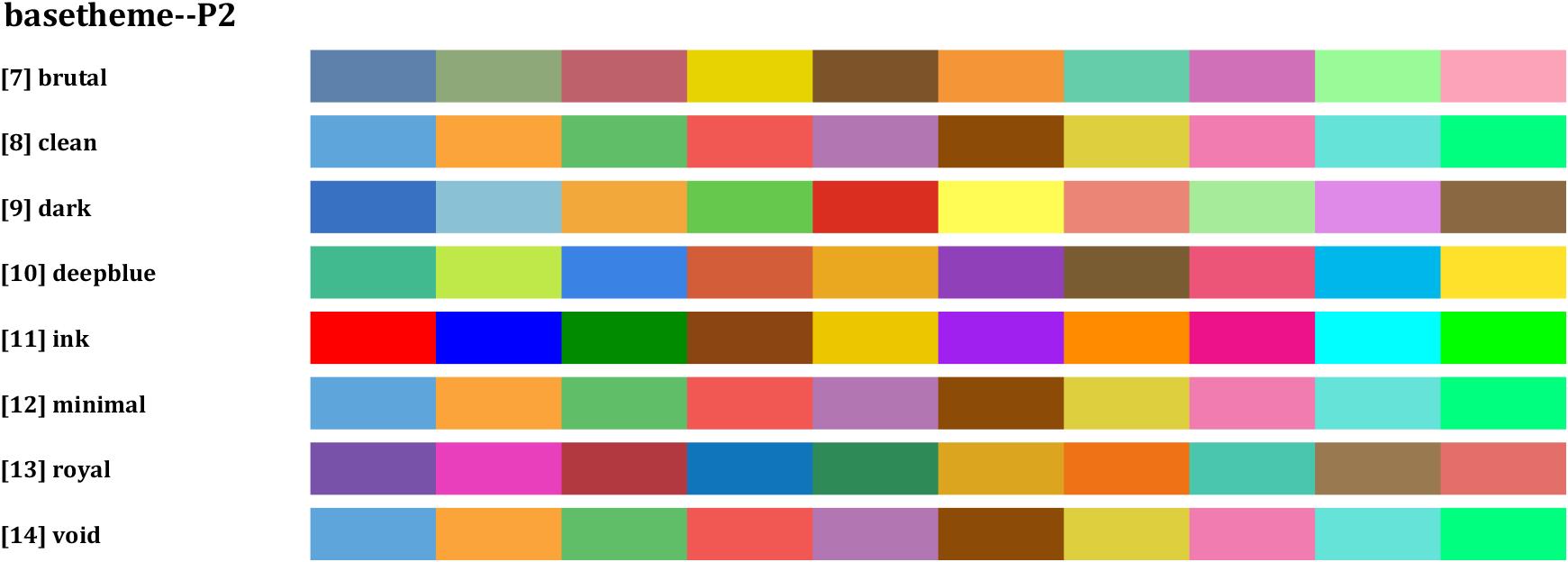
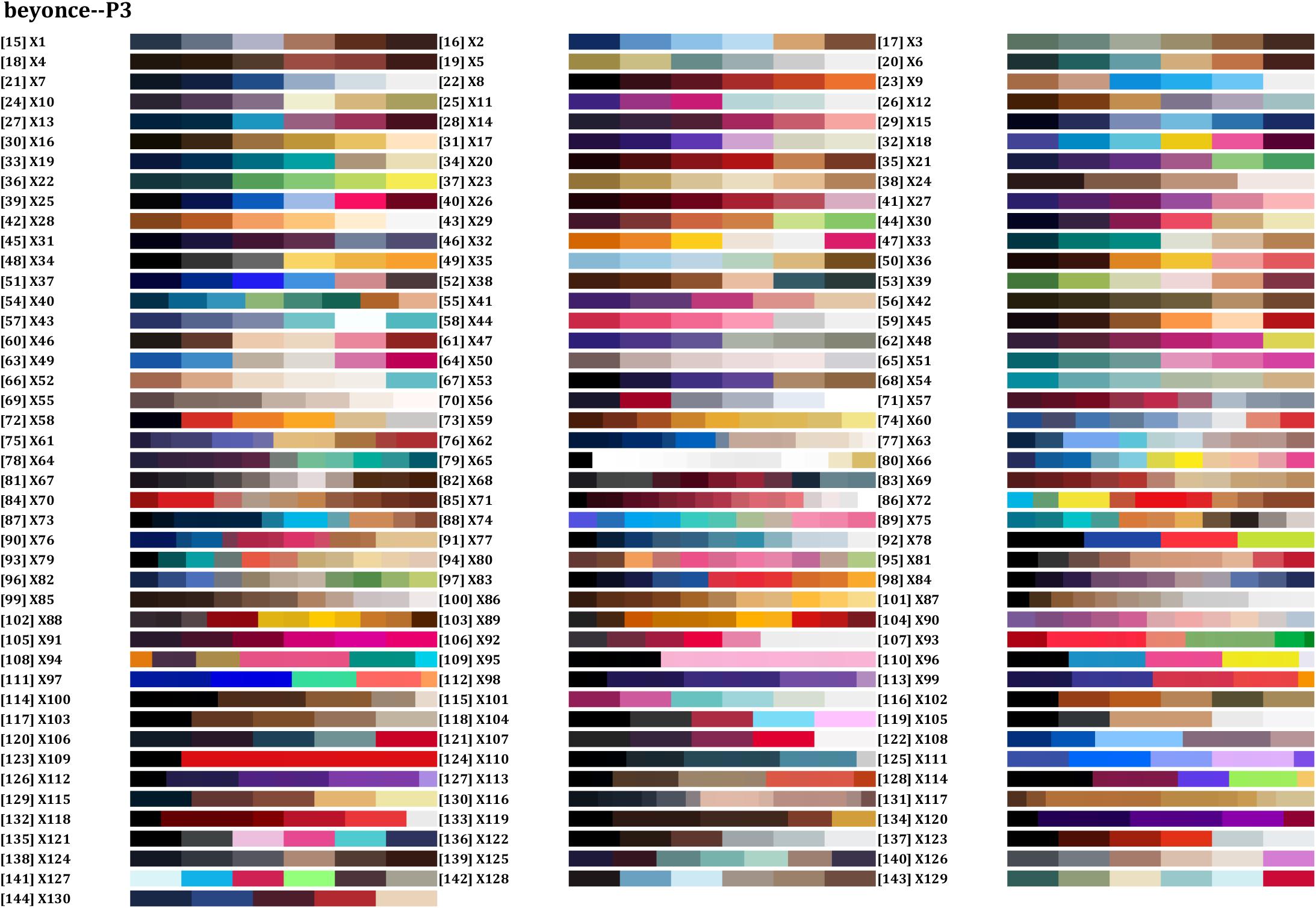







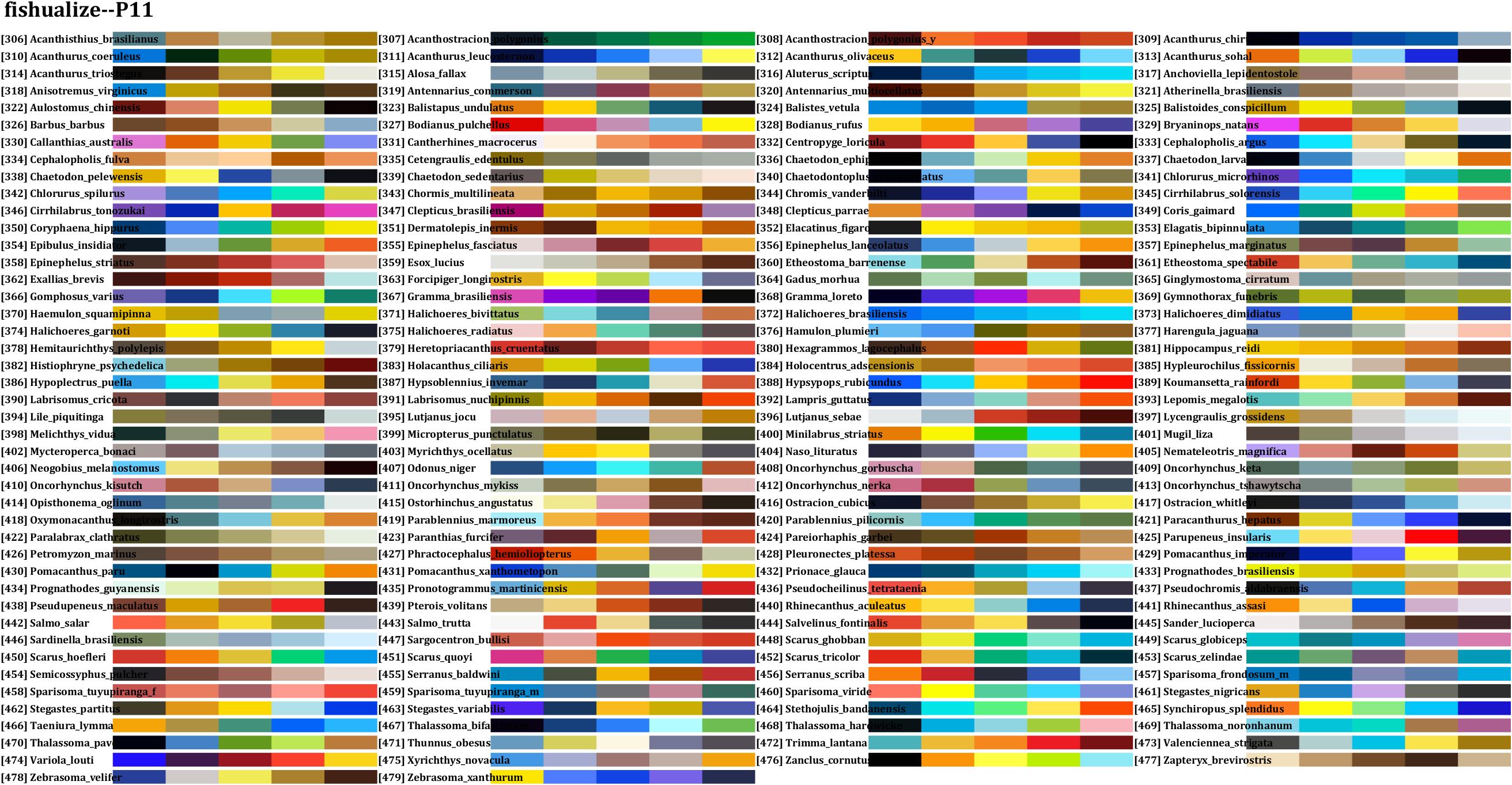


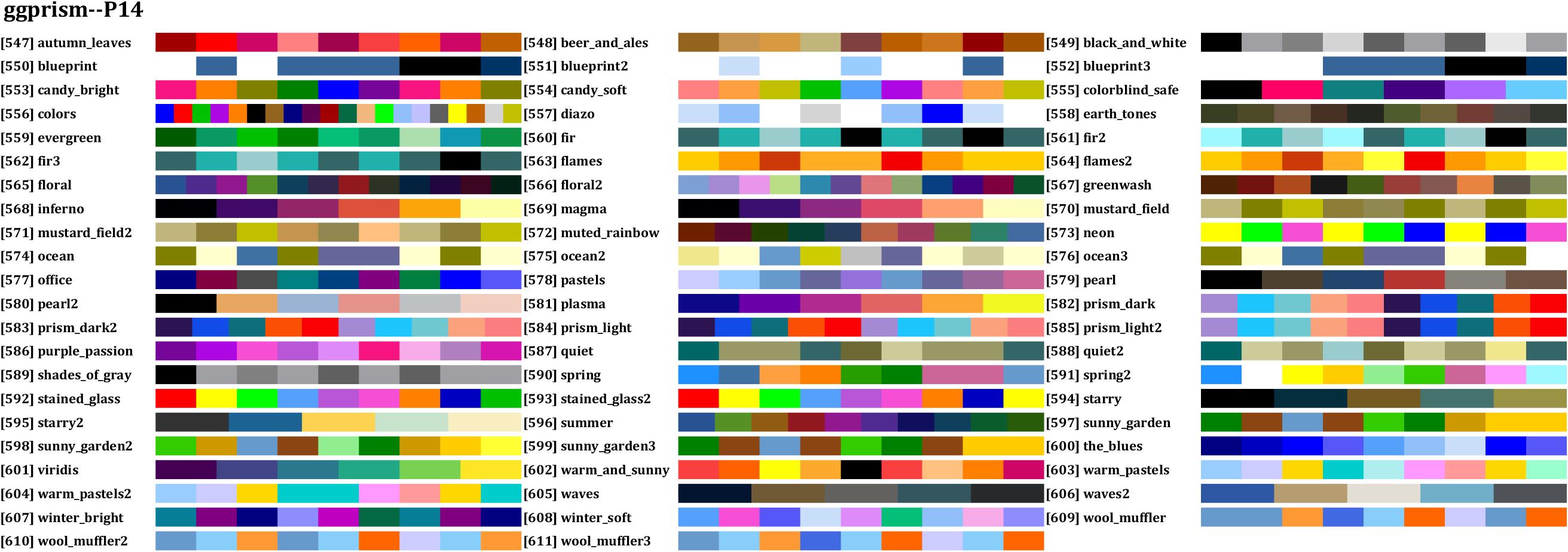

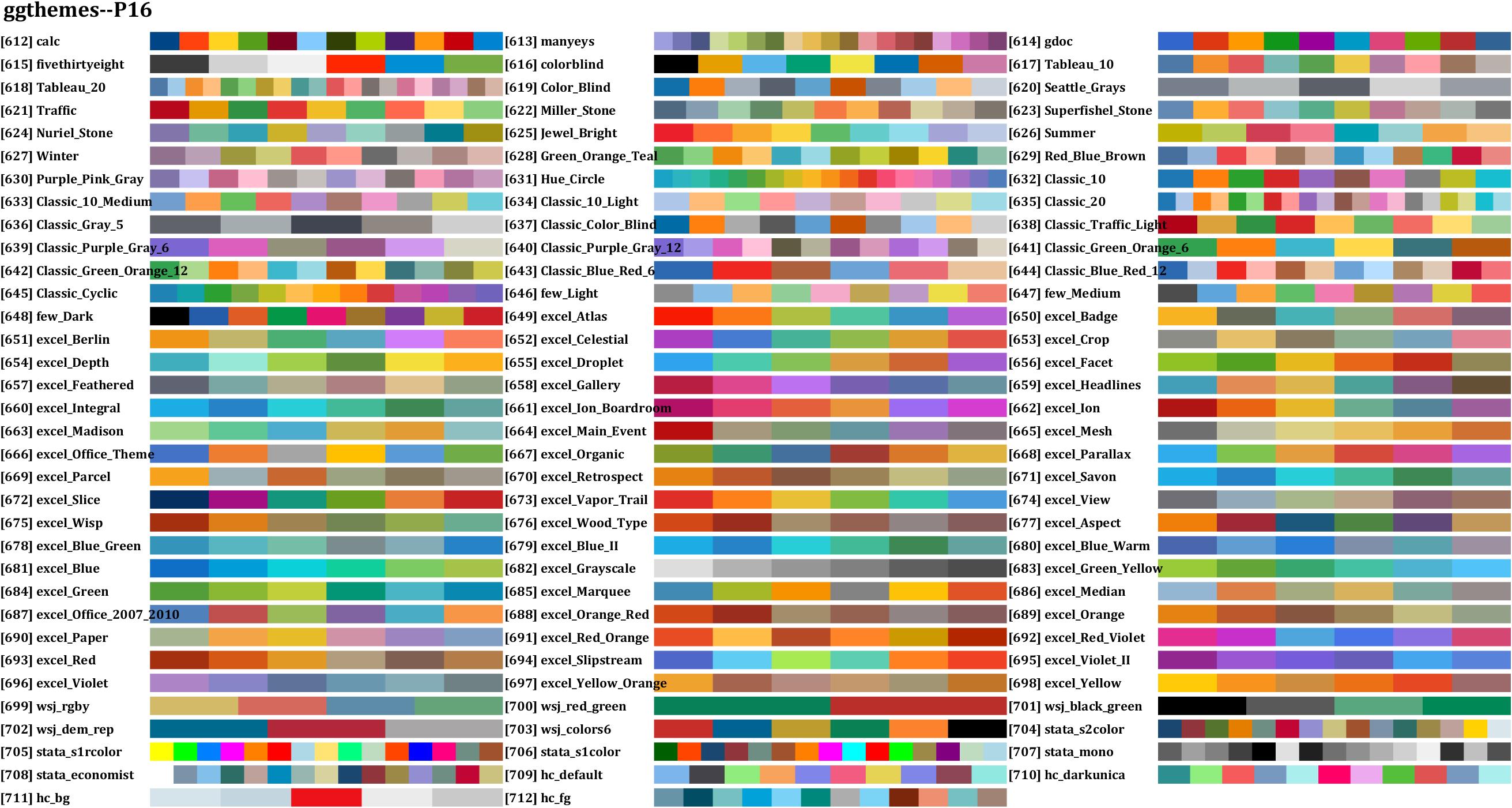

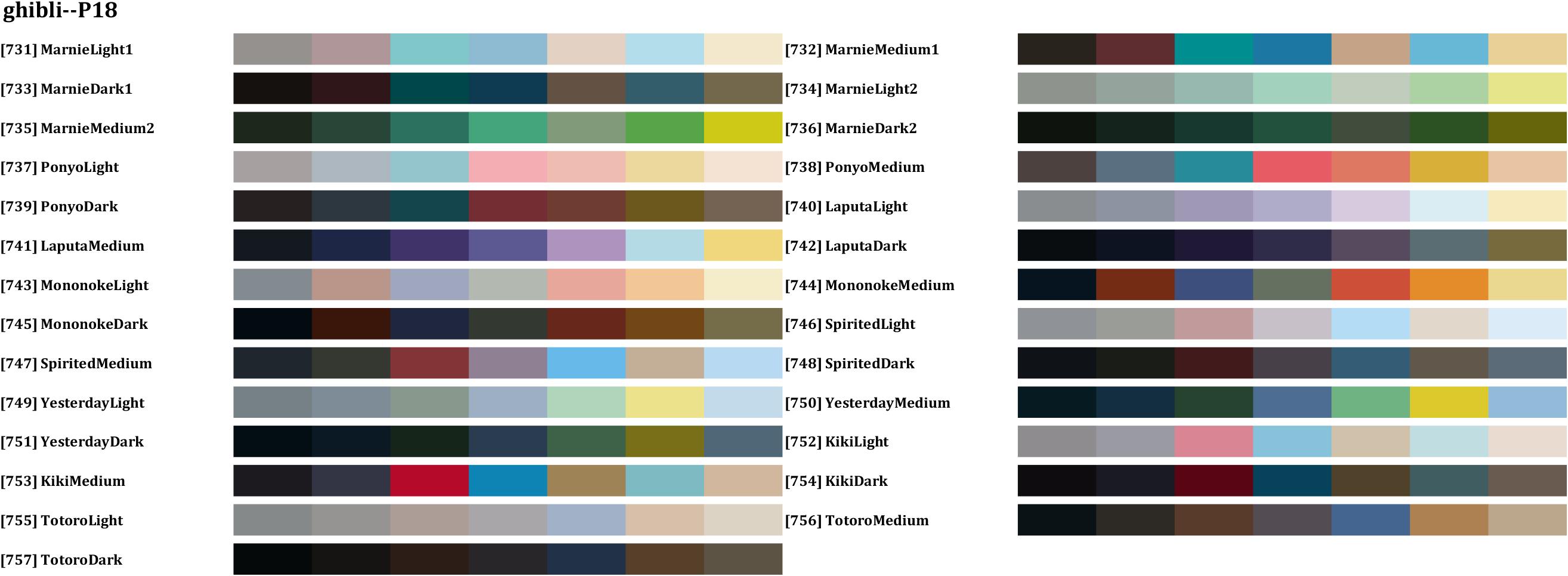





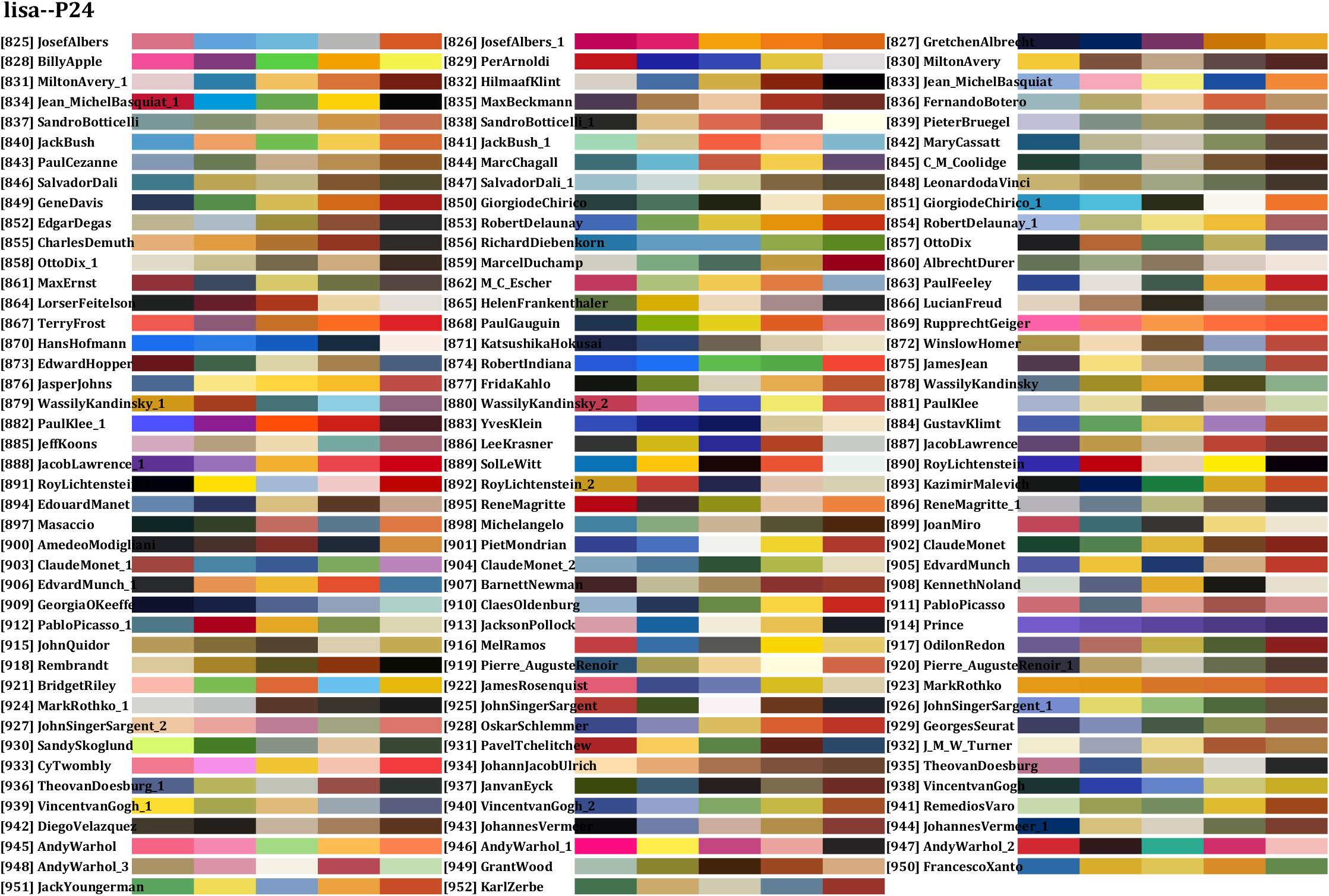



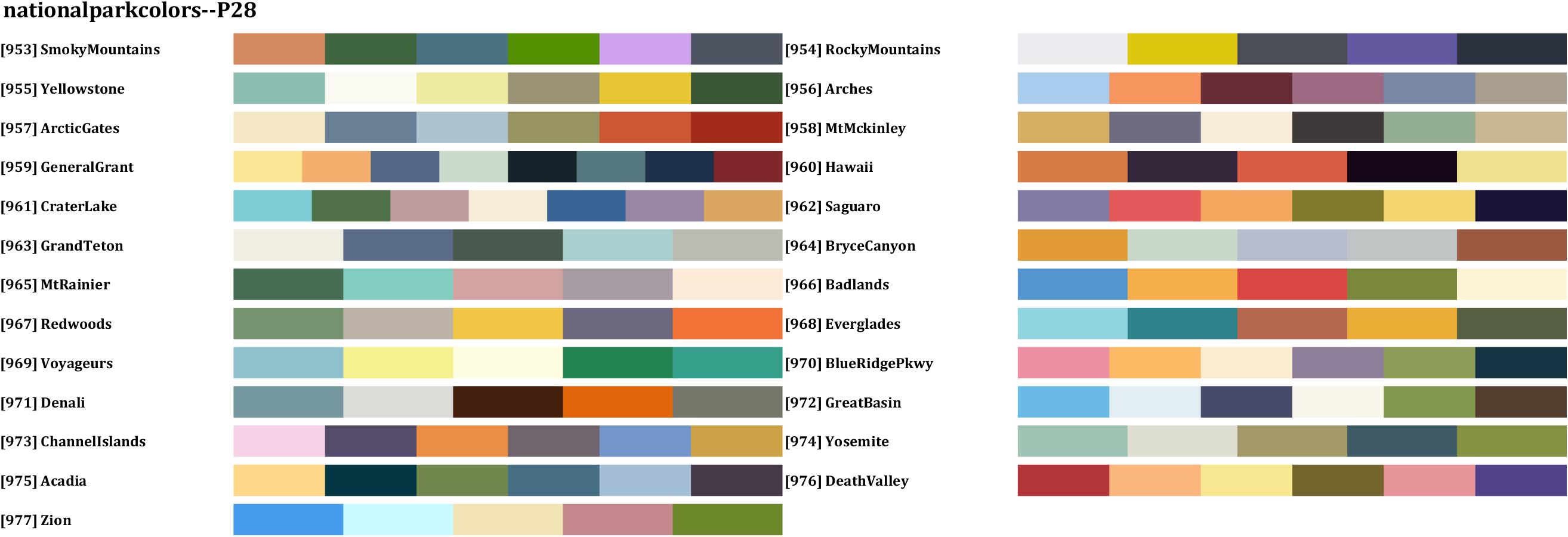
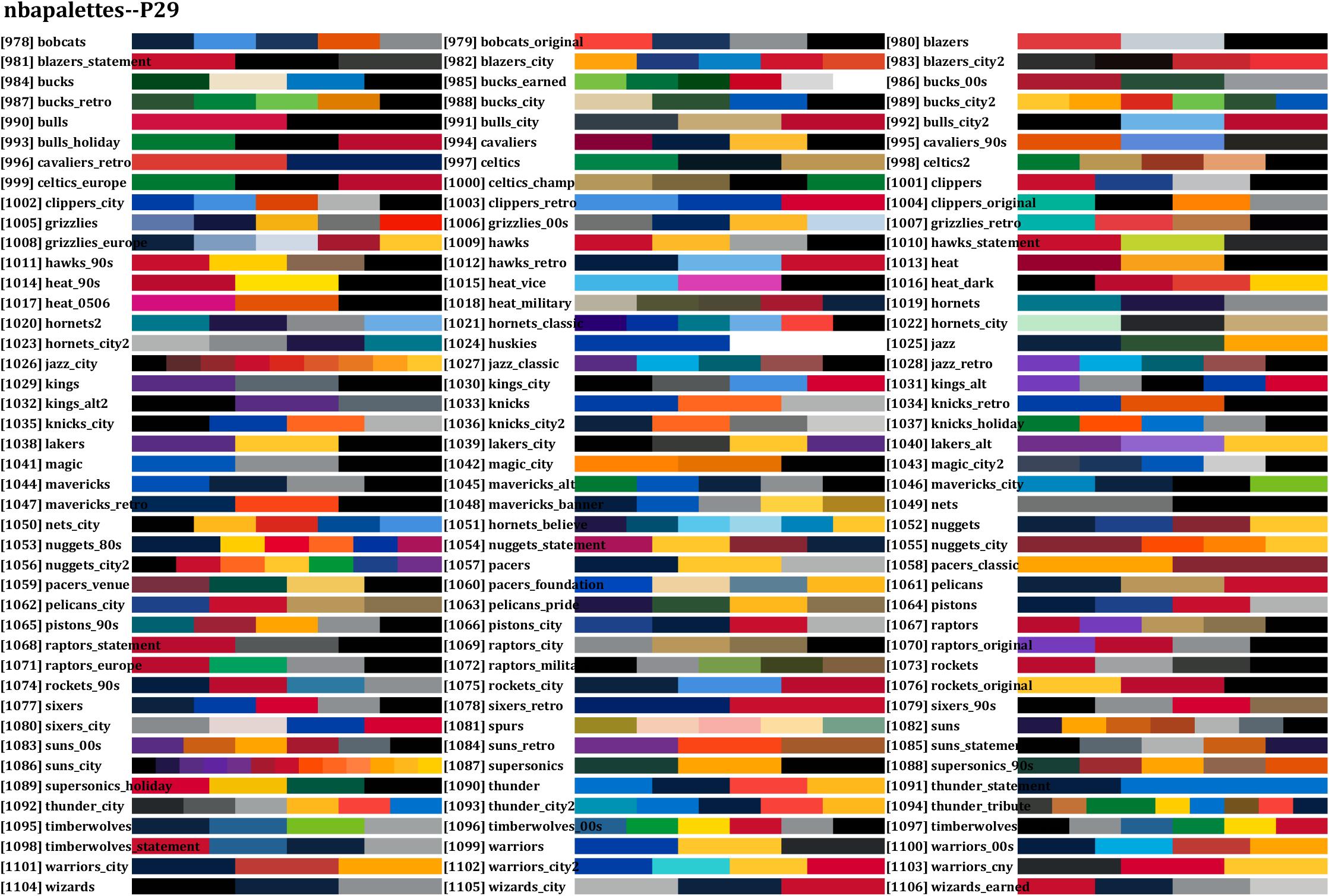




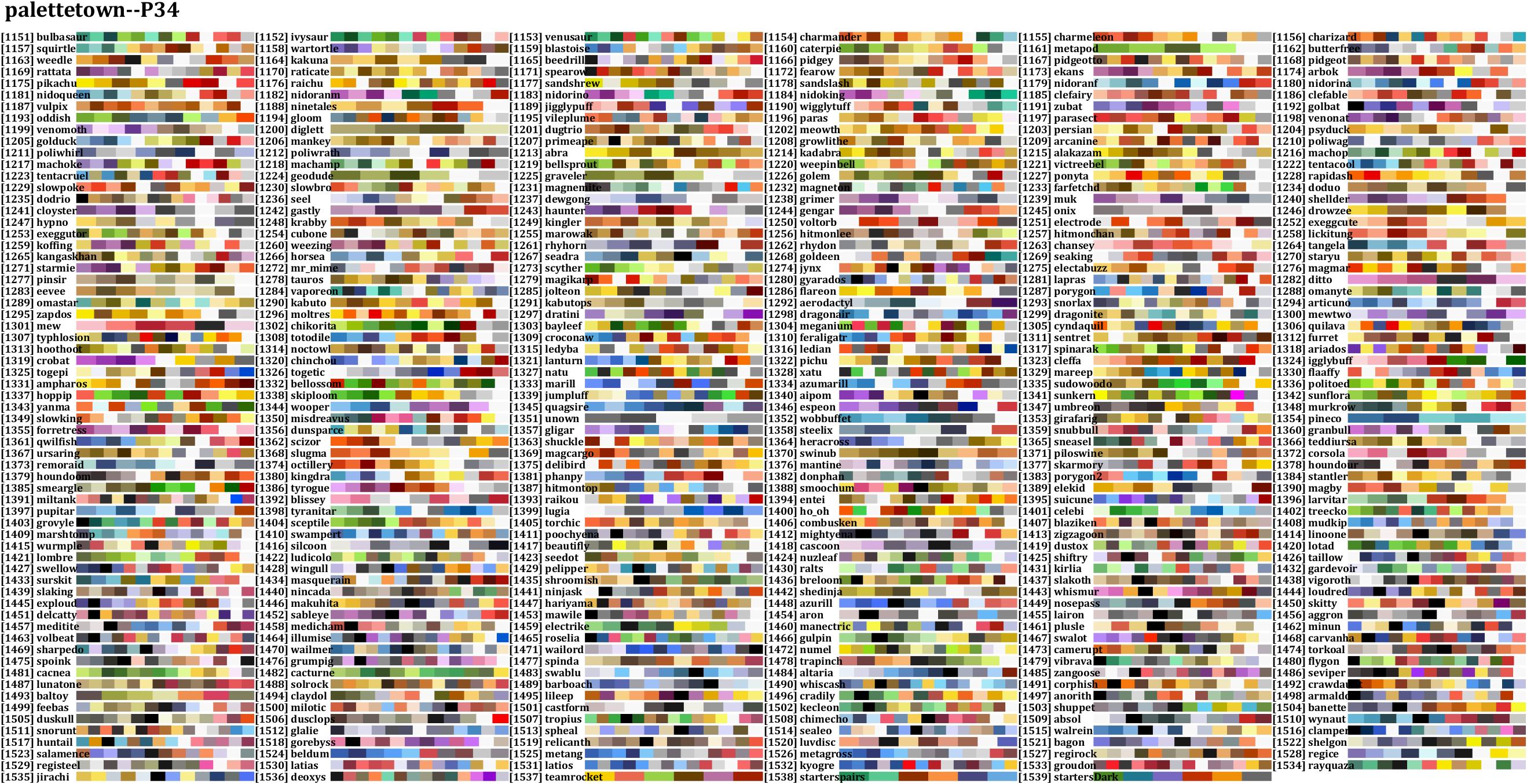
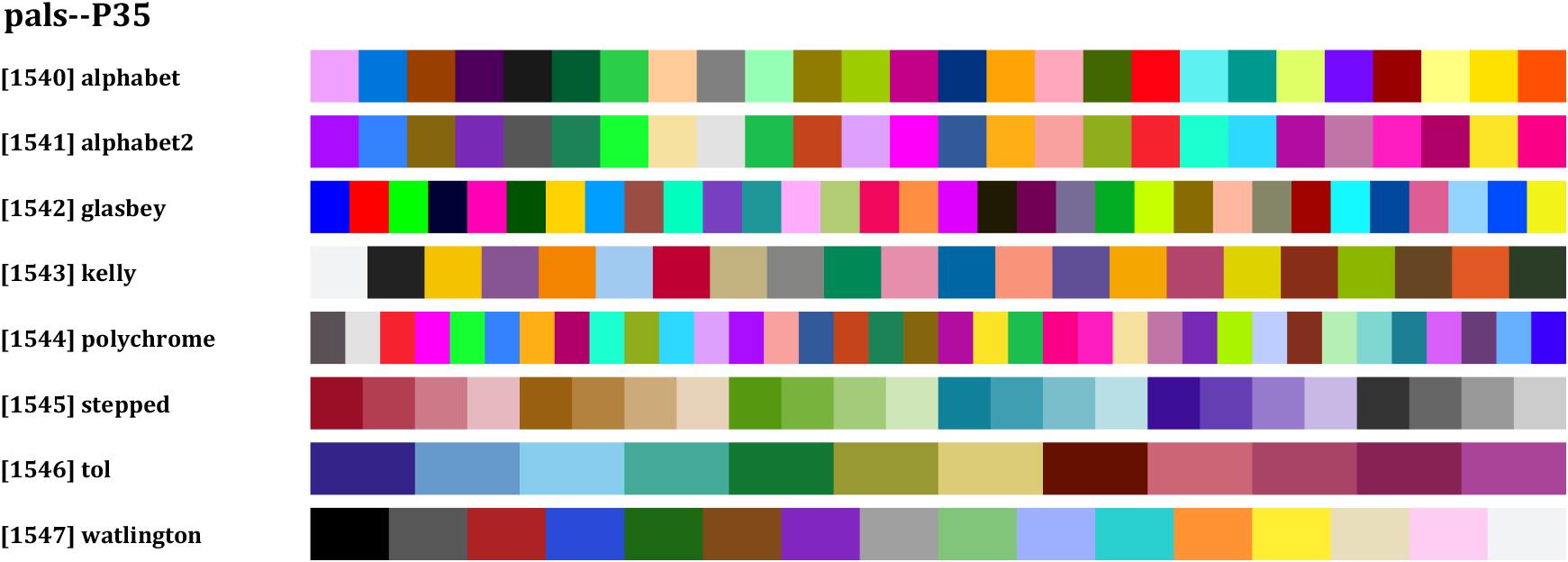













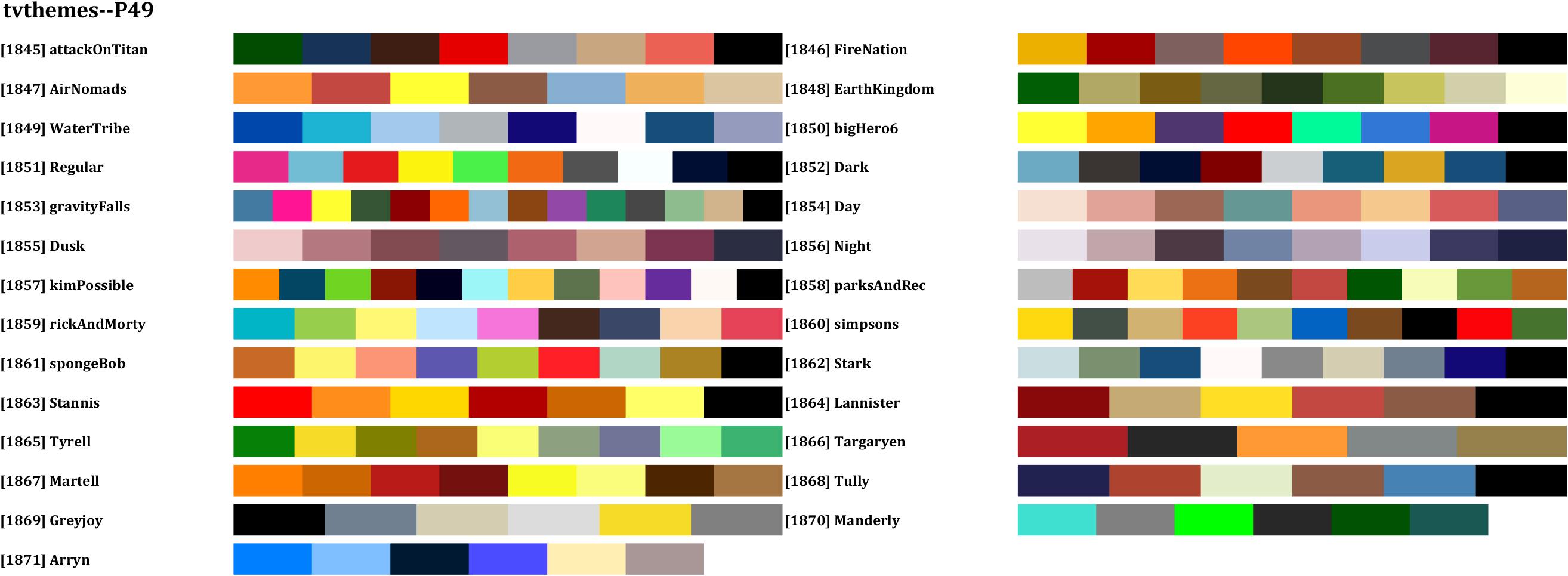

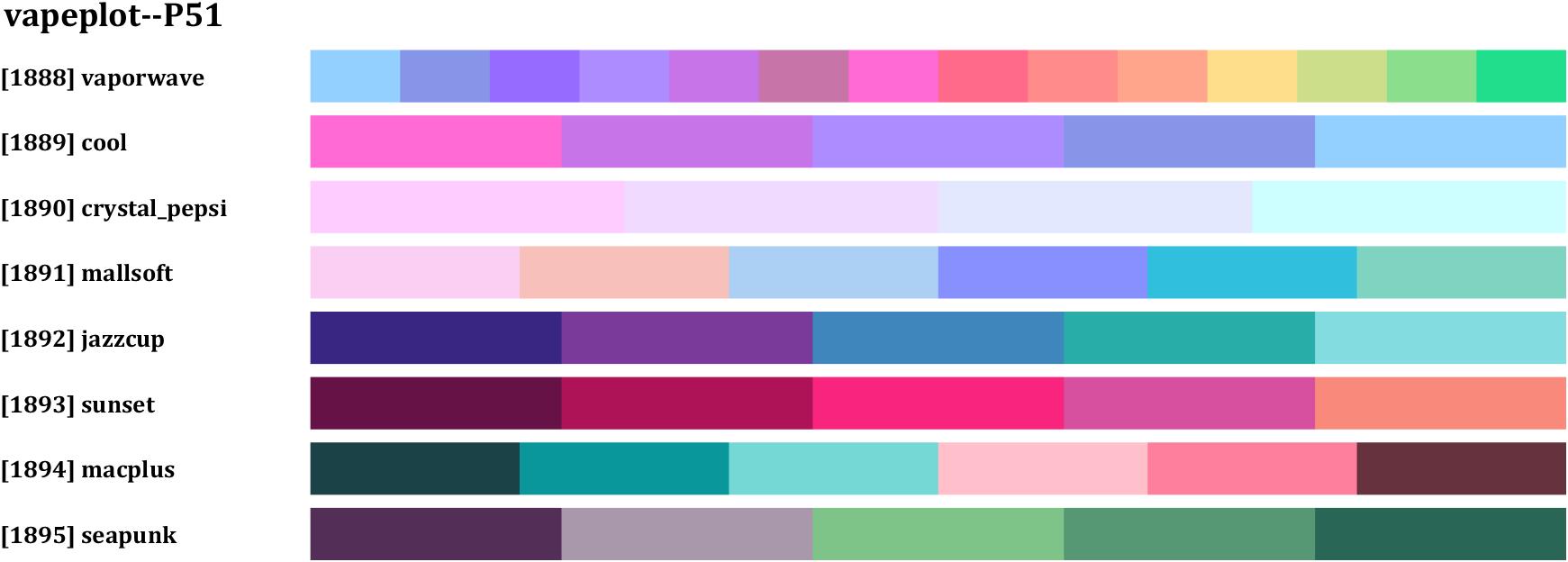




是不是有点壮观,这样选眼花了也选不出来配色,所以辅助筛选器来啦(showSlanCL.mlapp):
配色筛选器
选择来源库:
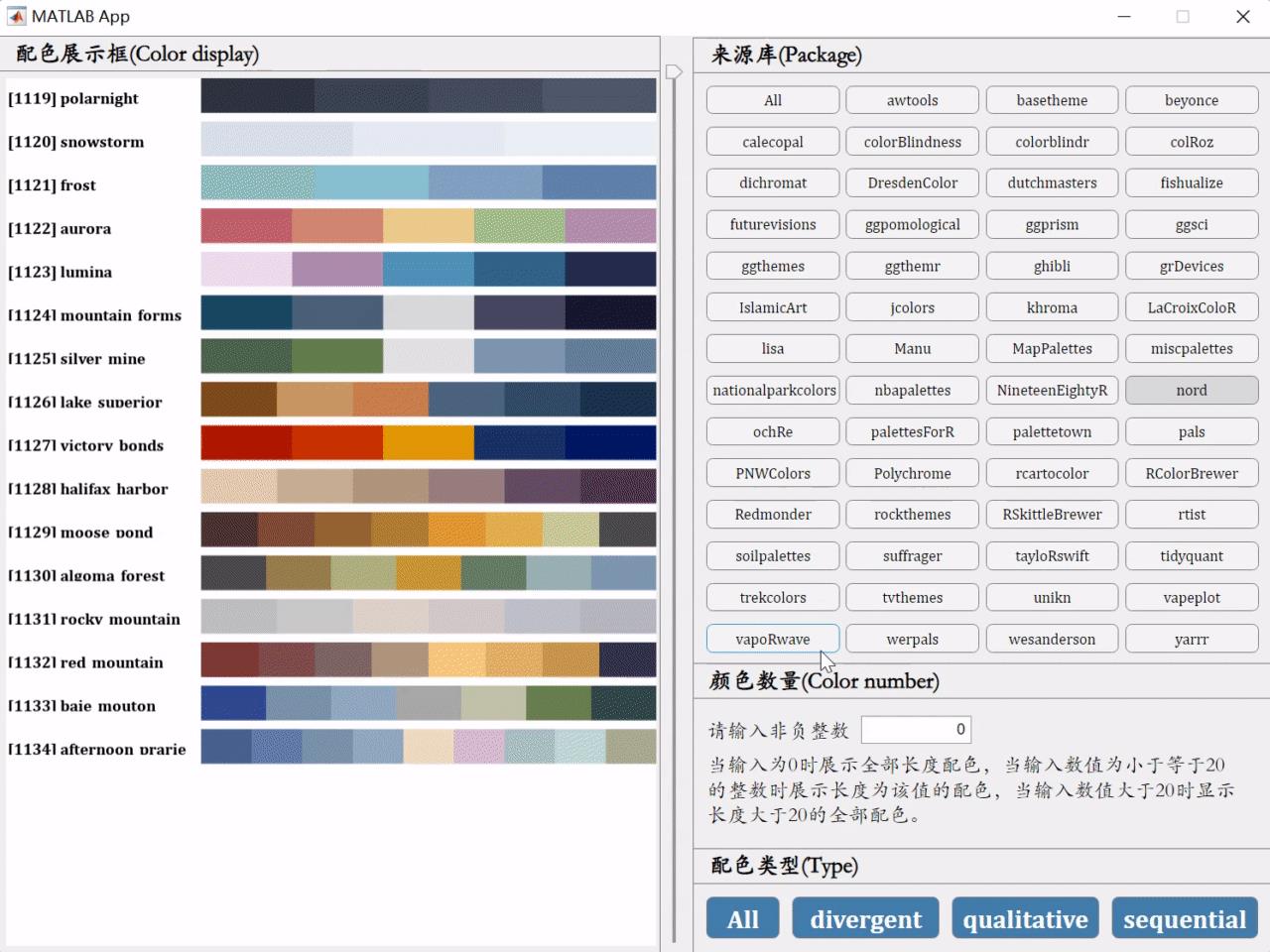
类型选择:
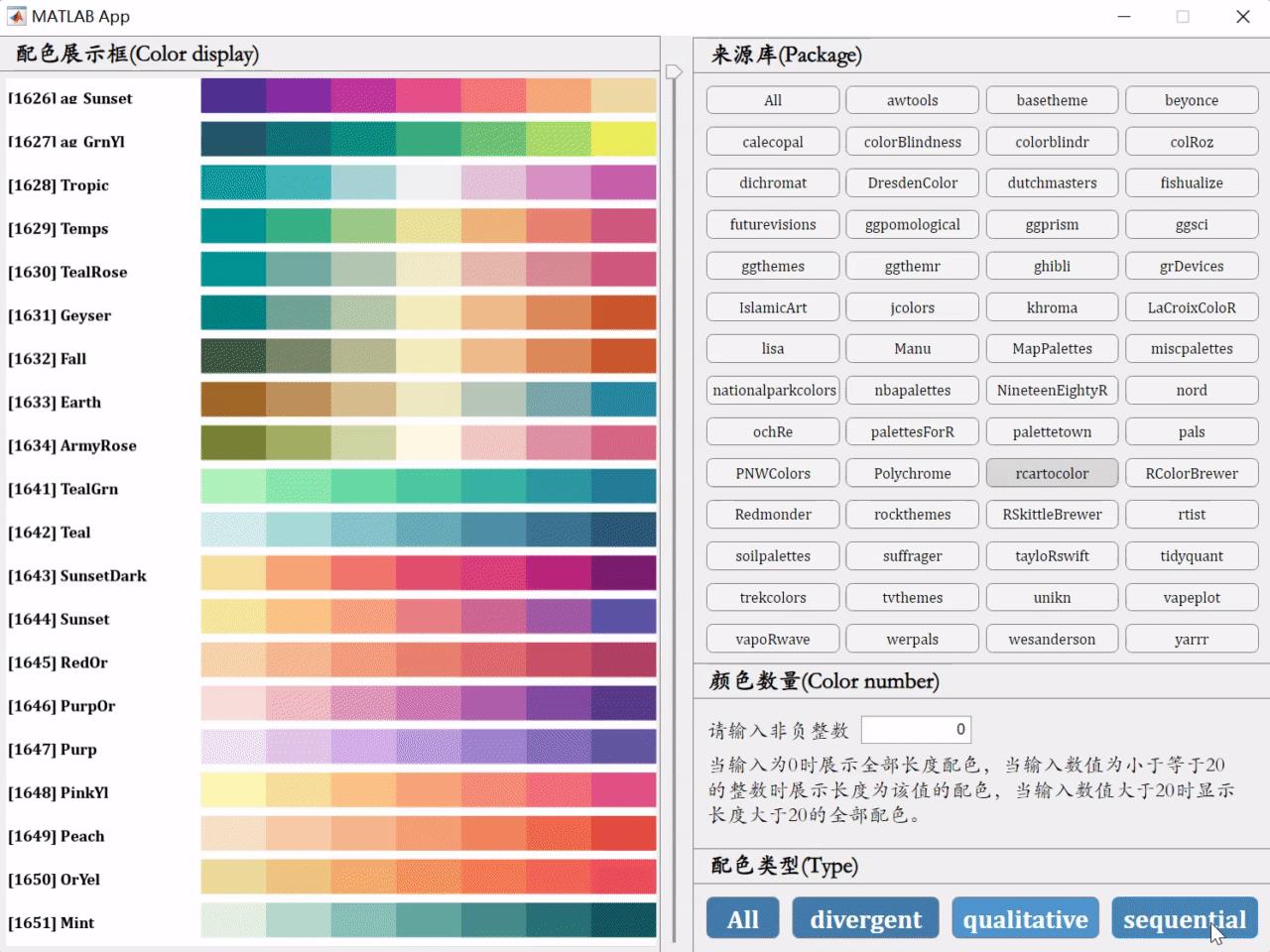
颜色数量选择:
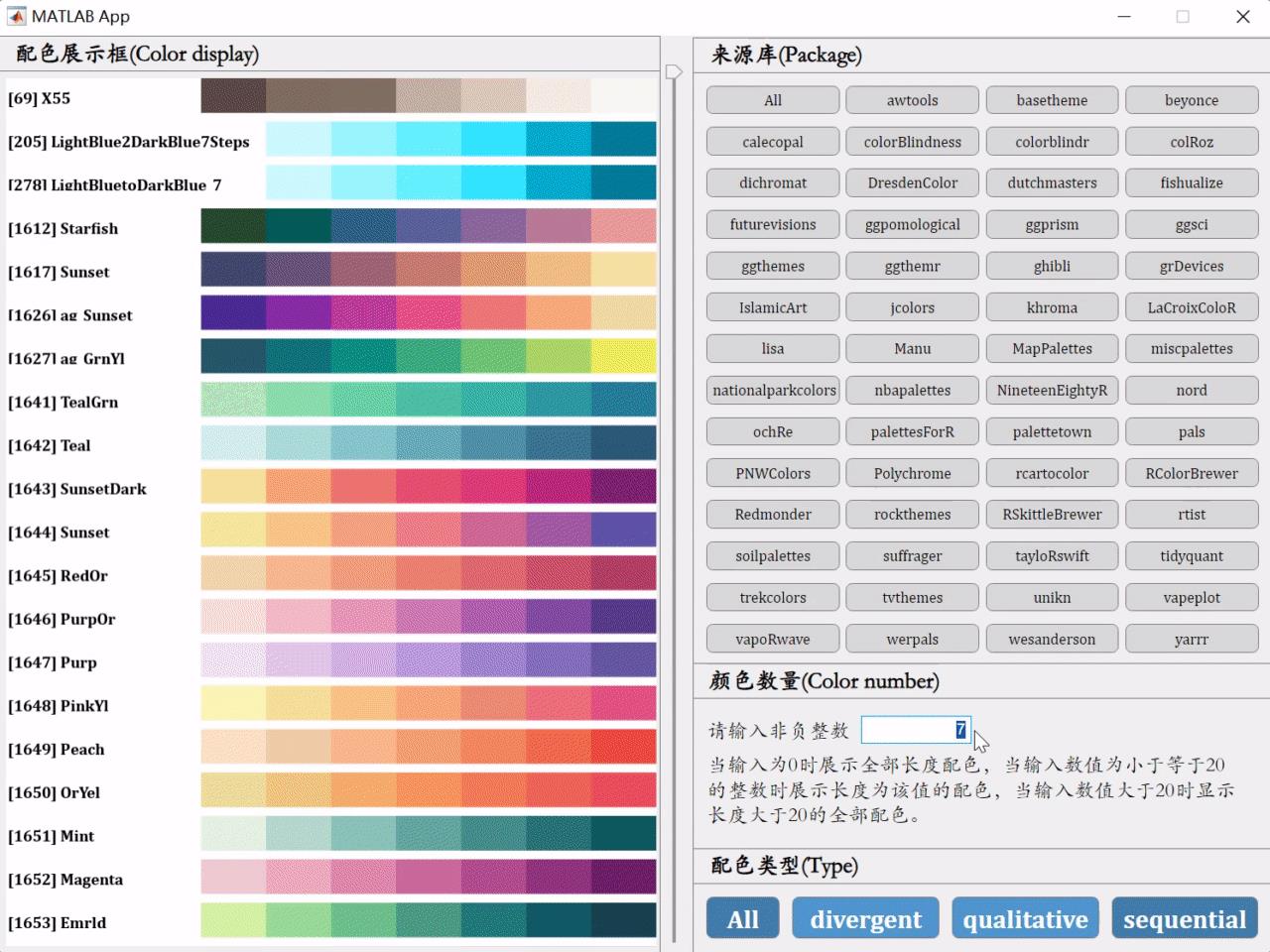
拖动滑动条:
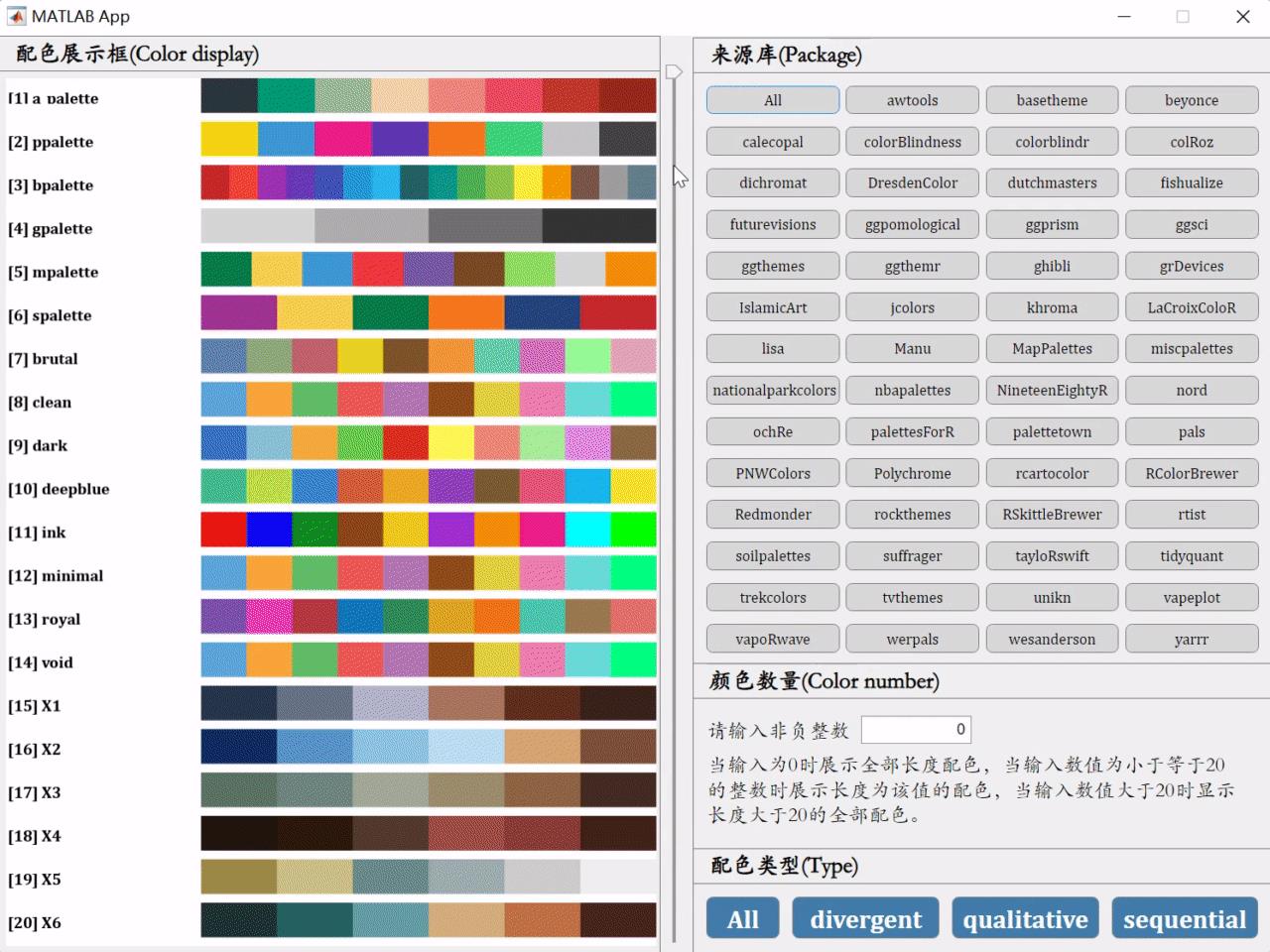
完
数据整理不易,希望大家该点赞的点赞,该在看的在看!!
未经允许本代码请勿作商业用途,引用的话可以引用我file exchange上的链接,可使用如下格式:
Zhaoxu Liu / slandarer (2023). 2000 palettes (https://www.mathworks.com/matlabcentral/fileexchange/126969-2000-palettes), MATLAB Central File Exchange. 检索来源 2023/3/28.
若转载请保留以上file exchange链接及本文链接!!!!!
该工具可通过上述fileexchange链接获取,或者通过以下gitee仓库下载:
https://gitee.com/slandarer/slanColor/
网盘链接:
链接:
https://pan.baidu.com/s/1oocjXDOQ_q1myB-1v29kgQ?pwd=slan
提取码:slan
MATLAB | MATLAB配色不够用 全网最全的colormap补充包来啦
示例图片


前言
众所周知,MATLAB中的colormap只有少得可怜的几种:
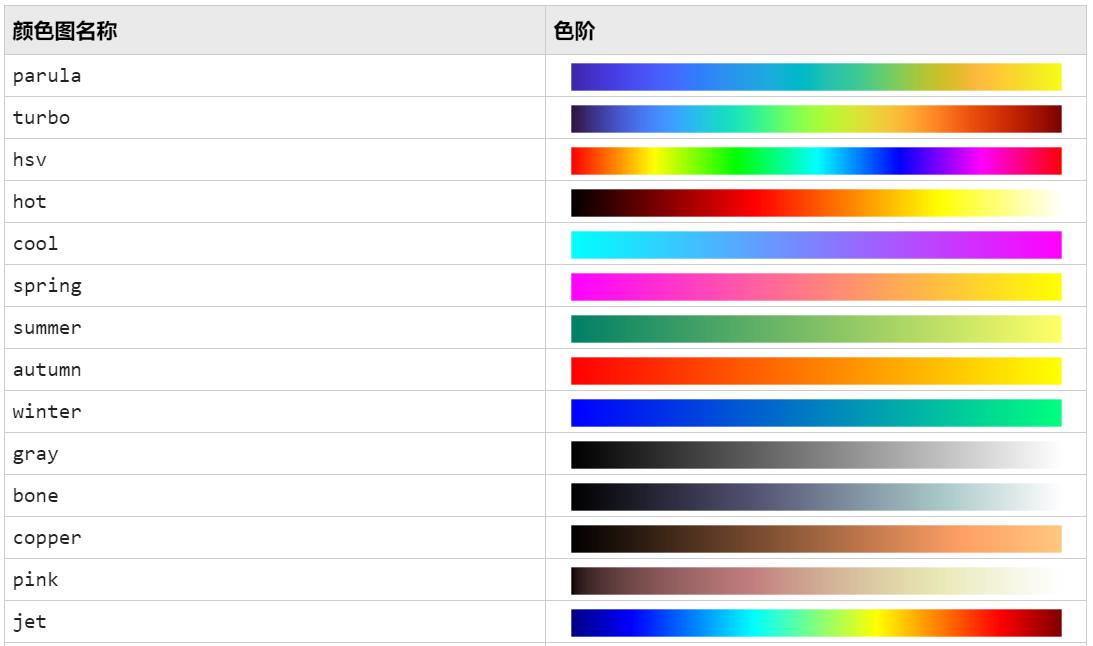
有很多应用在很特殊的图形中的colormap几乎都没有,而每次写代码都要去找颜色图属实太麻烦,因此就有了开发集成包的想法,我之前出过一篇使用python全部配色的文章,但是代码写的比较飘导致老版本用不了,这次使用了比较基础的代码和调用方式,争取能让更多人能用上。
matplotlab颜色新增了一些,但这哪够,于是我将:
matplotlabscicomapcmasherviscm
包全部集成了进来,终于有了这套包含200个colormap的工具函数slanCM
颜色展示
Perceptually Uniform Sequential 感知一致 colormap:

Pure Sequential 颜色较纯单方向渐变:

较复杂渐变:

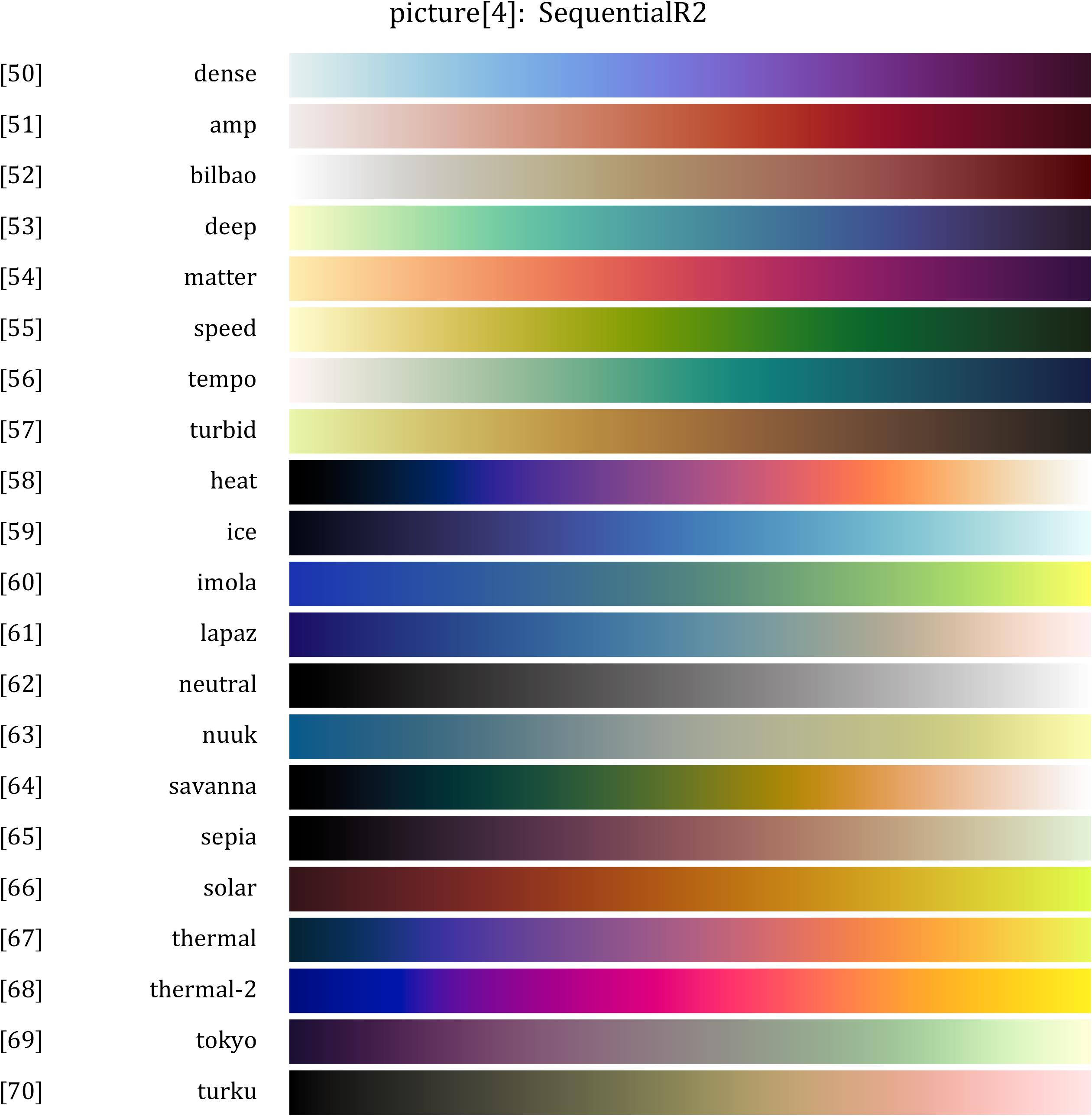

Diverging 双方向渐变:

Cyclic 循环渐变(两侧颜色可以对接在一起):

Miscellaneous 混杂渐变色,用于一些山地、光谱等特殊图绘制:
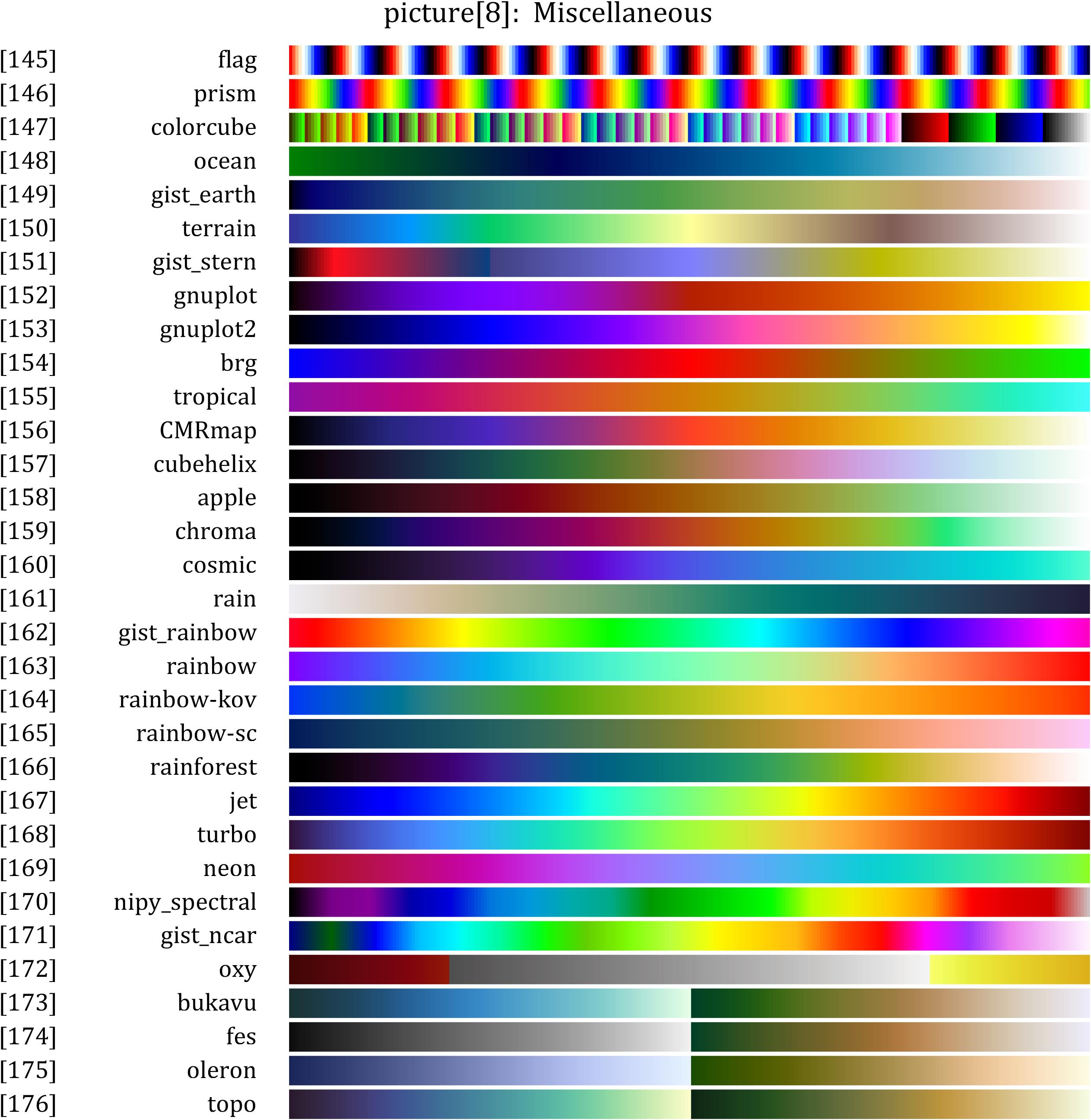
Qualitative 离散colormap:

使用方法
不指定获取颜色个数会默认256色,举例获取[163]号彩虹色(rainbow),以下两种写法等价:
- slanCM(‘rainbow’)
- slanCM(163)
第二个参数可以指定获取颜色数量,例如获取30颜色:
- slanCM(‘rainbow’,30)
- slanCM(163,30)
将获取的颜色放入colormap函或者某些图像的CData即可,例如:
- colormap(slanCM(‘rainbow’))
实际例子
demo1 曲面图
使用上述
- colormap(slanCM(‘rainbow’))
进行颜色修改:
% demo1
surf(peaks,'EdgeColor','w','EdgeAlpha',.3)
% 使用slanCM的彩虹配色
colormap(slanCM('rainbow'))
% 修饰一下
ax=gca;
ax.Projection='perspective';
ax.LineWidth=1.2;
ax.XMinorTick='on';
ax.YMinorTick='on';
ax.ZMinorTick='on';
ax.GridLineStyle=':';
view(-37,42)
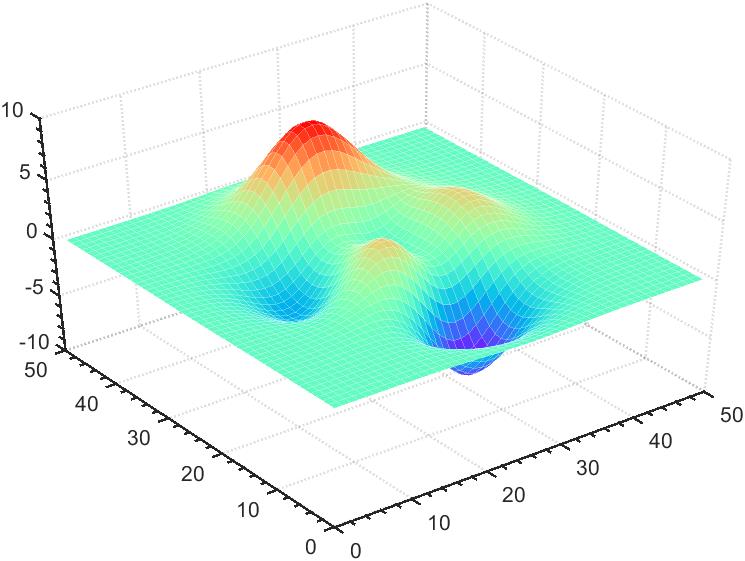
demo2 imagesc
使用100号配色:
% demo2
XData=rand(15,15);
XData=XData+XData.';
H=fspecial('average',3);
XData=imfilter(XData,H,'replicate');
imagesc(XData)
% 使用slanCM的100号配色
colormap(slanCM(100))
hold on
ax=gca;
ax.DataAspectRatio=[1,1,1];
ax.LineWidth=1.2;
ax.XMinorTick='on';
ax.YMinorTick='on';
ax.ZMinorTick='on';
ax.GridLineStyle=':';
view(-37,42)

demo3 灰度图
使用离散颜色:
% demo3
rgbImage=imread("peppers.png");
imagesc(rgb2gray(rgbImage))
colormap(slanCM('prism2'))

demo4 特殊地形配色
使用特殊地形配色terrain:
% demo4
X=linspace(0,1,200)';
CL=(-cos(X*2*pi)+1).^.2;
r=(X-.5)'.^2+(X-.5).^2;
surf(X,X',abs(ifftn(exp(7i*rand(200))./r.^.9)).*(CL*CL')*30,'EdgeColor','none')
colormap(slanCM('terrain'))
light
material dull
view(59.1823,56.1559)
% 修饰一下
ax=gca;
ax.Projection='perspective';
ax.LineWidth=.8;
ax.XMinorTick='on';
ax.YMinorTick='on';
ax.ZMinorTick='on';
ax.GridLineStyle=':';
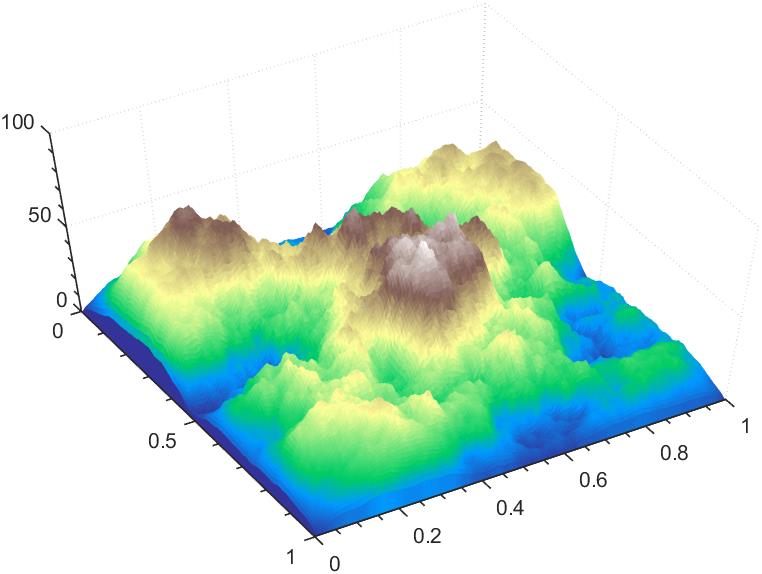
加个光照:
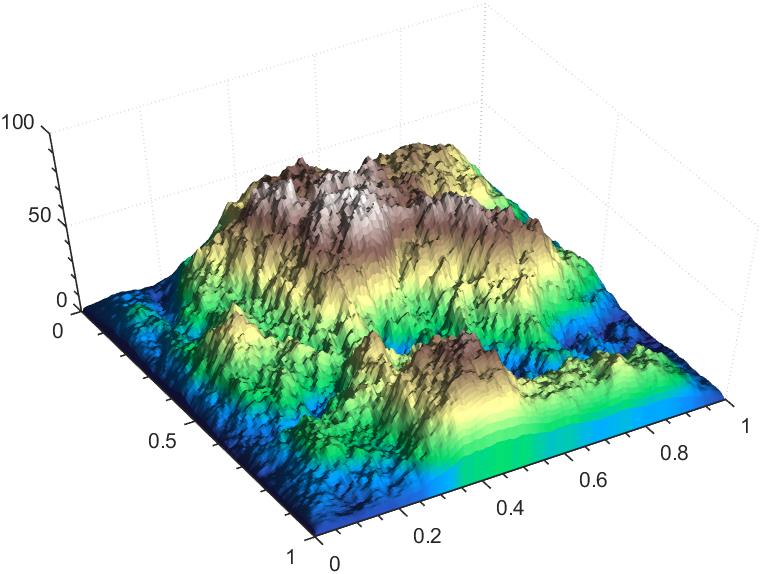
demo5 多colormap
% demo5
X=linspace(0,1,200)';
CL=(-cos(X*2*pi)+1).^.2;
r=(X-.5)'.^2+(X-.5).^2;
Z=abs(ifftn(exp(7i*rand(200))./r.^.9)).*(CL*CL')*30;
ax1=axes('Parent',gcf,'OuterPosition',[0,1/2,1/2,1/2],'LooseInset',[0,0,0,0]);
contourf(Z,'EdgeColor','none')
ax1.Colormap=slanCM('tokyo',200);
ax2=axes('Parent',gcf,'OuterPosition',[1/2,1/2,1/2,1/2],'LooseInset',[0,0,0,0]);
contourf(Z,'EdgeColor','none')
ax2.Colormap=slanCM('sepia',200);
ax3=axes('Parent',gcf,'OuterPosition',[0,0,1/2,1/2],'LooseInset',[0,0,0,0]);
contourf(Z,'EdgeColor','none')
ax3.Colormap=slanCM('turku',200);
ax4=axes('Parent',gcf,'OuterPosition',[1/2,0,1/2,1/2],'LooseInset',[0,0,0,0]);
contourf(Z,'EdgeColor','none')
ax4.Colormap=slanCM('copper2',200);

demo6 帅气的分形
% demo6
% MvLevi :https://ww2.mathworks.cn/matlabcentral/communitycontests/contests/5/entries/10775
C=-9:9e-3:9;D=-9:9e-3:9;
for q=1:2001
for j=1:2001
X=.5;
for i=1:5
if mod(i,2)==0
X(i+1)=X(i)-C(q)*(.5+.3*cos(X(i)))^-1;
else
X(i+1)=X(i)-D(j)*(.5+.3*cos(X(i)))^-1;
end
end
P=diff(X);
L(q,j)=mean(log(abs(P)));
end
end
pcolor(C,D,-L)
shading flat
axis off
caxis([-3.5 3.5])
colormap(slanCM('twilight'))
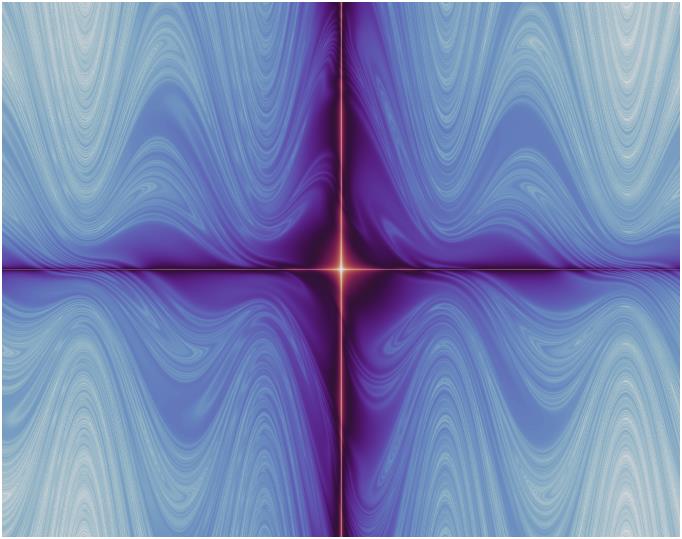
demo7 渐变柱状图
多试了几个颜色:
% demo7
X=randi([2,15],[1,25])+rand([1,25]);
b=bar(X);
CMap=slanCM('hsv');
b.FaceColor='flat';
b.CData=slanCM(188,length(b.XData));
% 42 56 63 100 133 187 188
% 修饰一下
ax=gca;hold on;grid on
ax.DataAspectRatio=[1,1,1];
ax.LineWidth=1.2;
ax.XMinorTick='on';
ax.YMinorTick='on';
ax.ZMinorTick='on';
ax.GridLineStyle=':';
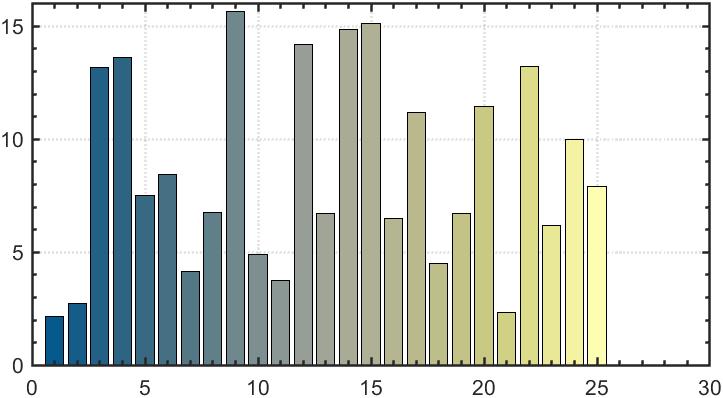
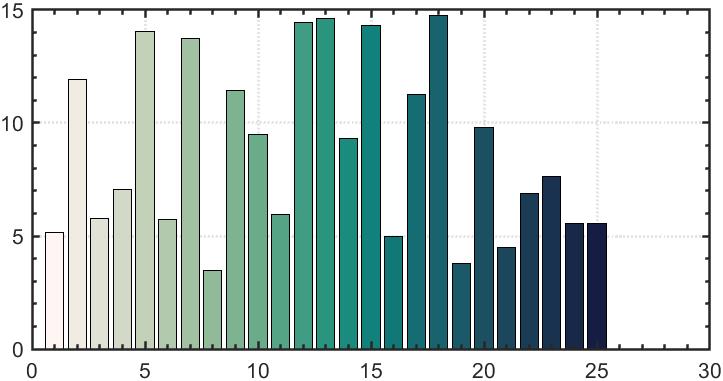
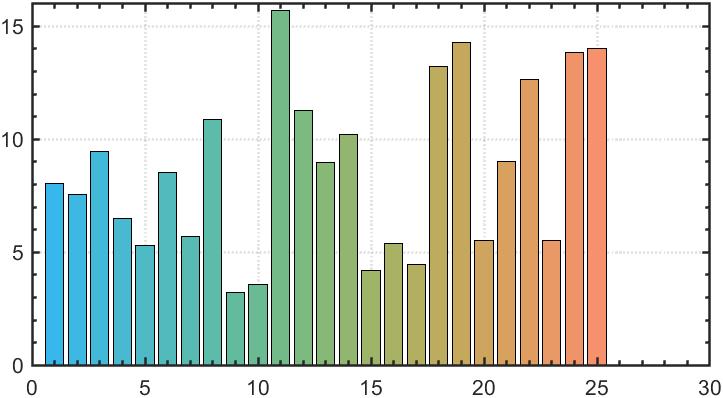
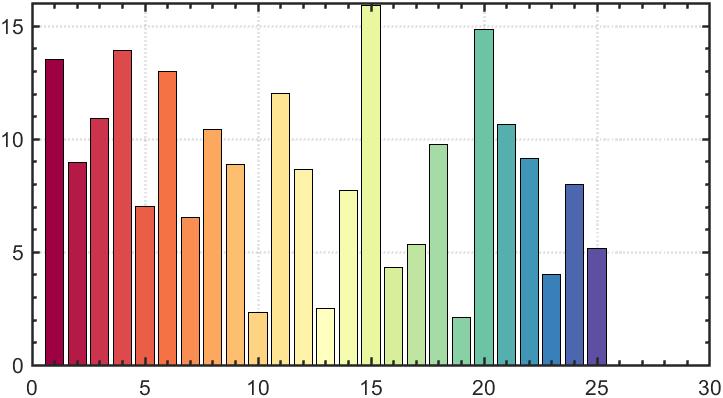
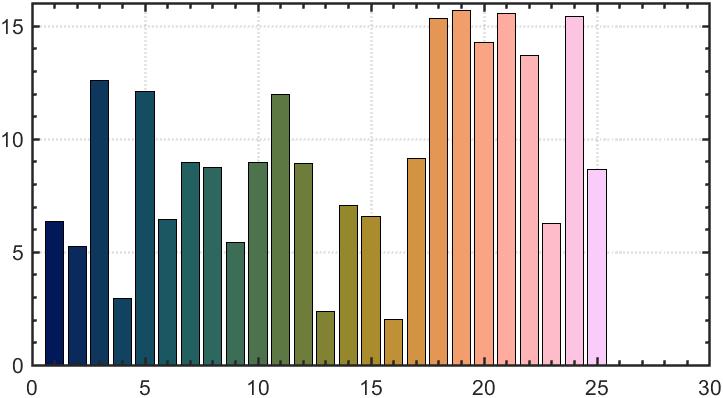
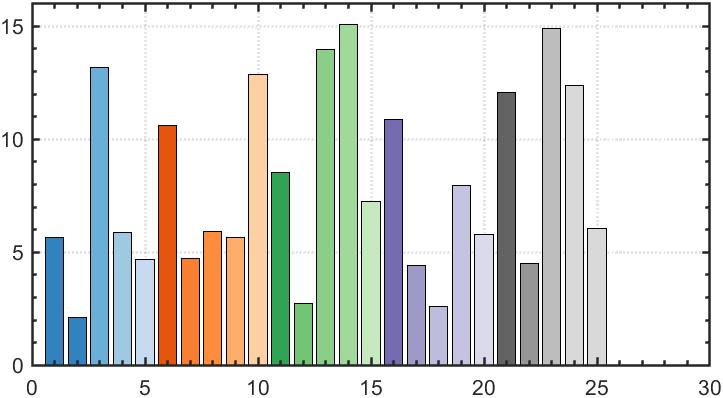

demo8 散点图
% demo8
rng('default')
for i = 1:20000
x = -0.4 + 0.8*randi([0 1],1,18);
A = gallery('circul',x);
E(:,i) = eig(A);
end
scatter(real(E(:)),imag(E(:)),8,'filled','CData',slanCM('twilight',length(E(:))))
xlabel('Re(E)')
ylabel('Im(E)')
xlim([-3 3])
ylim([-3 3])
axis square

demo9 气泡图
% demo9
x=1:30;
[~,ind]=sort(rand(1,30));
x=x(ind);
y=rand(1,30);
sz=sort(rand(1,30));
% 100 102 94
bubblechart(x,y,sz,'CData',slanCM(94,30));
% 修饰一些
ax=gca;hold on
ax.LineWidth=.8;
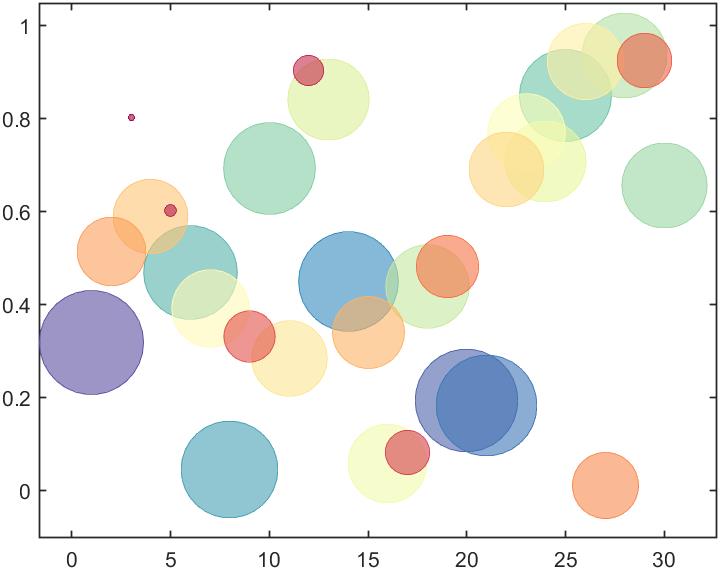

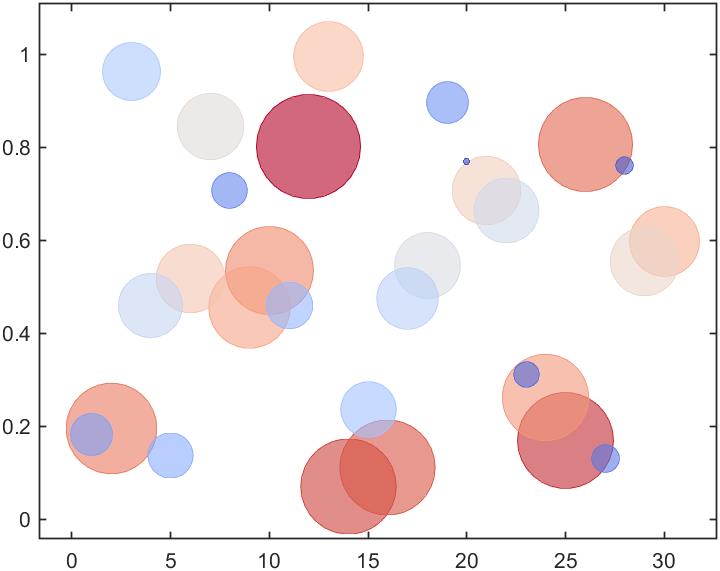
另(建议略过)
鉴于一部分人问过我咋从python获取颜色,这里给两段python代码:
matplotlab获取全部颜色:
import numpy as np
import matplotlib.pyplot as plt
cmaps = [('Perceptually Uniform Sequential', [
'viridis', 'plasma', 'inferno', 'magma', 'cividis']),
('Sequential', [
'Greys', 'Purples', 'Blues', 'Greens', 'Oranges', 'Reds', 'YlOrBr', 'YlOrRd', 'OrRd', 'PuRd', 'RdPu', 'BuPu', 'GnBu', 'PuBu', 'YlGnBu', 'PuBuGn', 'BuGn', 'YlGn']),
('Sequential (2)', [
'binary', 'gist_yarg', 'gist_gray', 'gray', 'bone', 'pink', 'spring', 'summer', 'autumn', 'winter', 'cool', 'Wistia', 'hot', 'afmhot', 'gist_heat', 'copper']),
('Diverging', [
'PiYG', 'PRGn', 'BrBG', 'PuOr', 'RdGy', 'RdBu', 'RdYlBu', 'RdYlGn', 'Spectral', 'coolwarm', 'bwr', 'seismic']),
('Cyclic', ['twilight', 'twilight_shifted', 'hsv']),
('Qualitative', [
'Pastel1', 'Pastel2', 'Paired', 'Accent', 'Dark2', 'Set1', 'Set2', 'Set3', 'tab10', 'tab20', 'tab20b', 'tab20c']),
('Miscellaneous', [
'flag', 'prism', 'ocean', 'gist_earth', 'terrain', 'gist_stern', 'gnuplot', 'gnuplot2', 'CMRmap', 'cubehelix', 'brg', 'gist_rainbow', 'rainbow', 'jet', 'turbo', 'nipy_spectral', 'gist_ncar'])]
def plot_color_gradients(cmap_category, cmap_list):
print(cmap_category)
print(cmap_list)
for color in cmap_list:
np.savetxt(color+'.txt', np.c_[plt.get_cmap(color)(np.linspace(0, 1, 256))],fmt='%f',delimiter='\\t')
for cmap_category, cmap_list in cmaps:
plot_color_gradients(cmap_category, cmap_list)
scicomap获取全部颜色:
import numpy as np
import matplotlib.pyplot as plt
import scicomap as sc
import numpy as np
sc_map = sc.SciCoMap()
typeList=sc_map.get_ctype()
print(typeList)
sc_dic=sc.get_cmap_dict()
for i in typeList:
tdic=sc_dic[i]
print('-----------------')
for j in tdic.keys():
color=tdic[j]
np.savetxt(j+'.txt', np.c_[plt.get_cmap(color)(np.linspace(0, 1, 256))],fmt='%f',delimiter='\\t')
print(j)